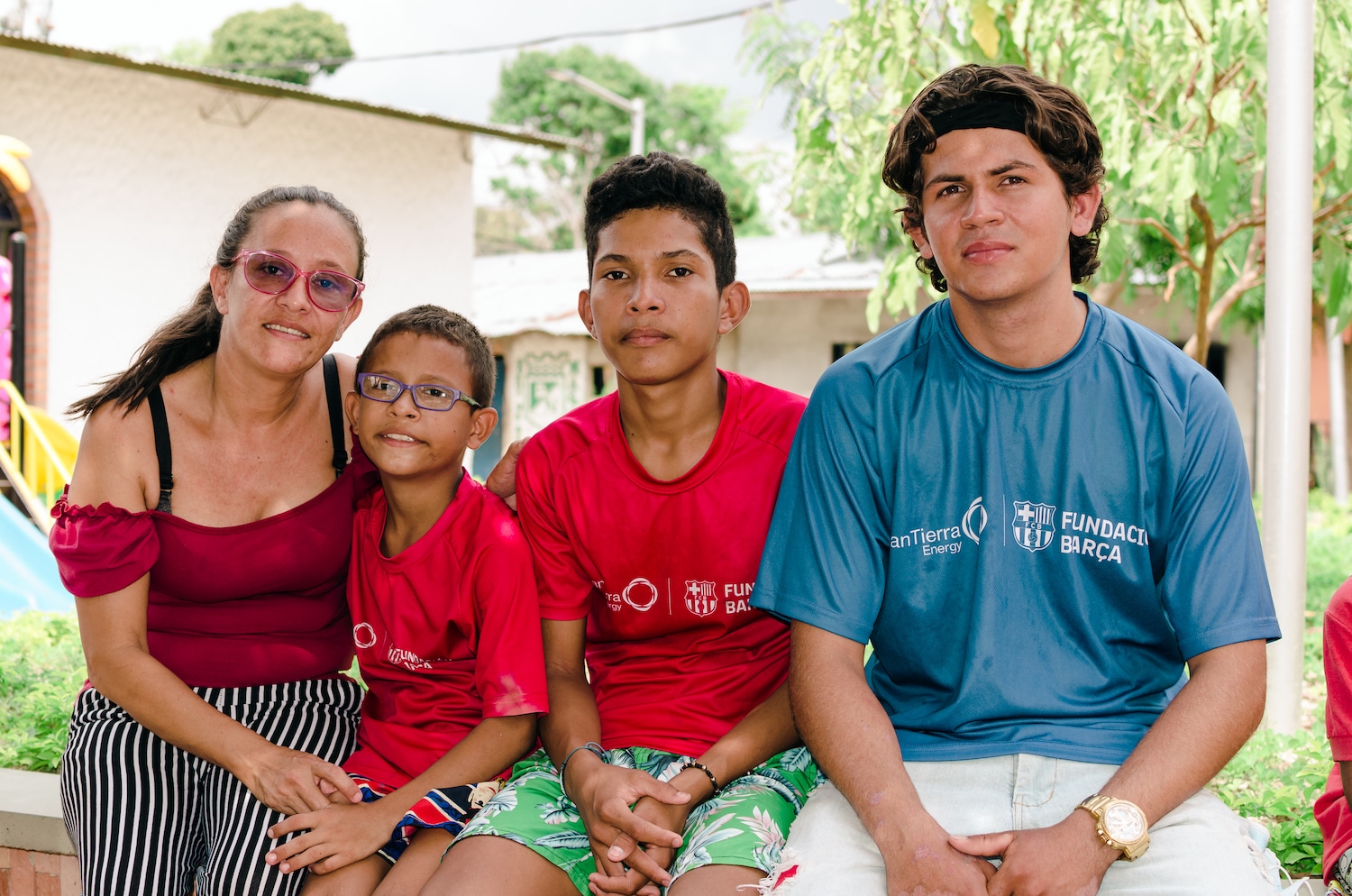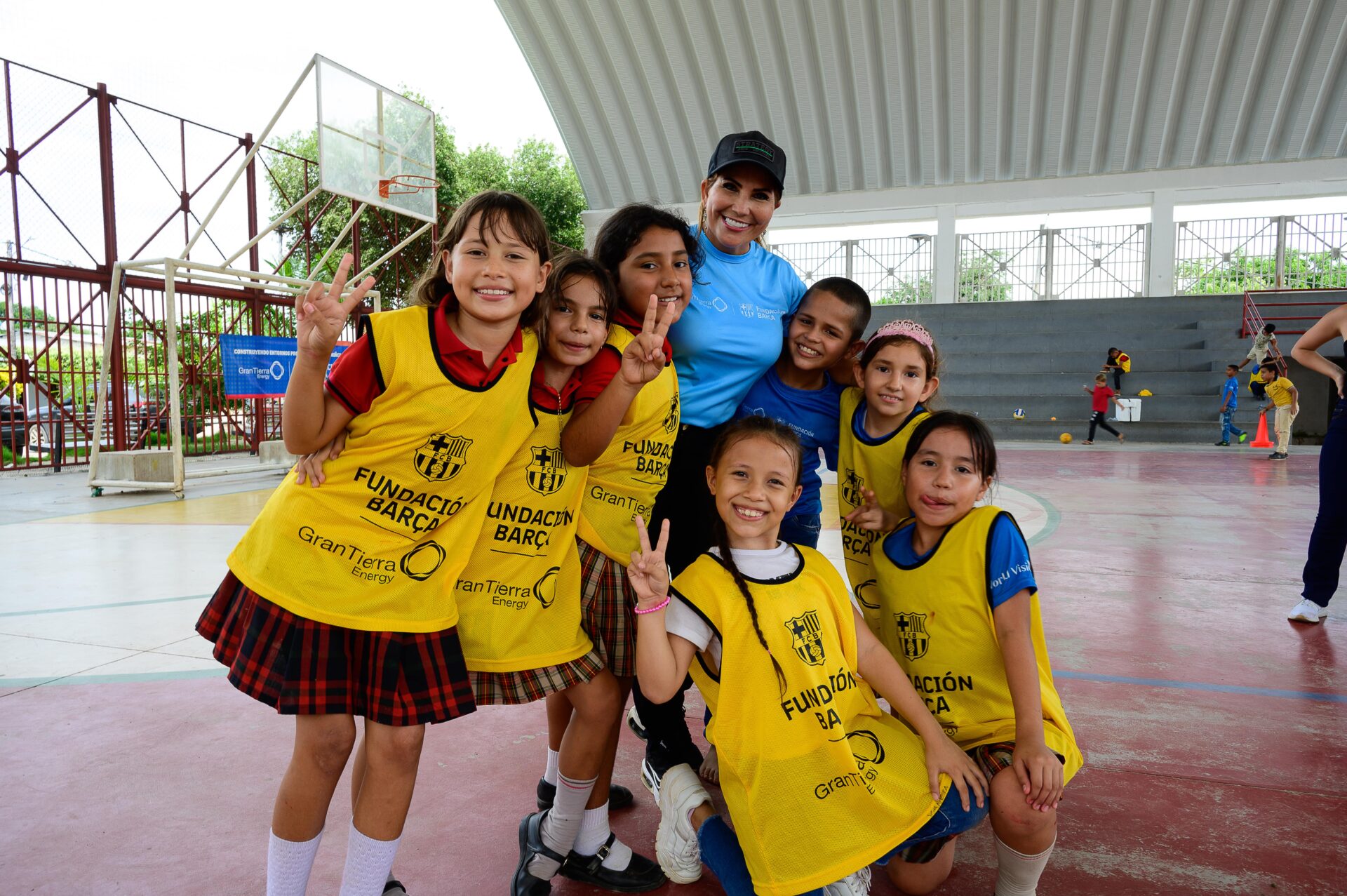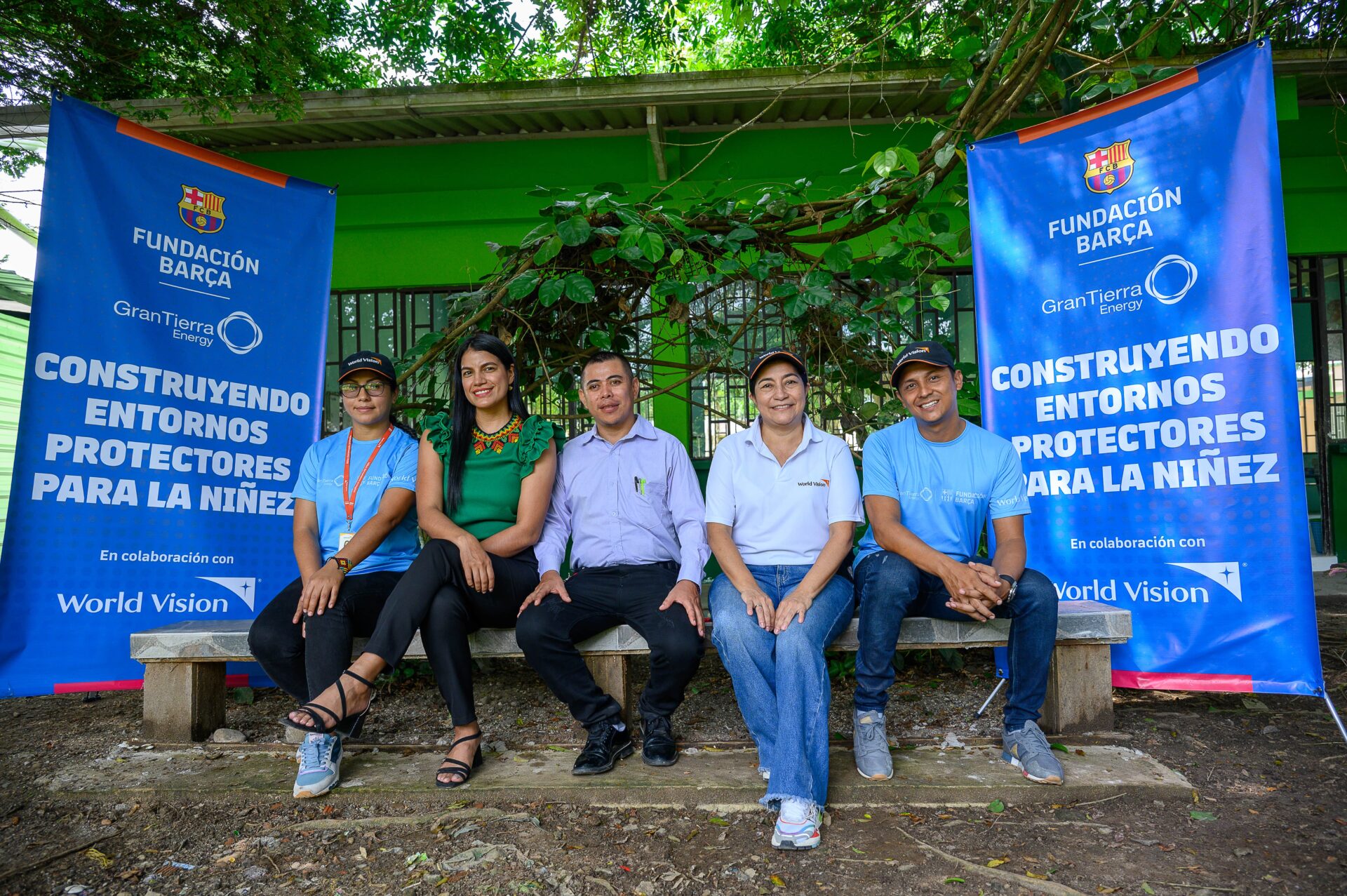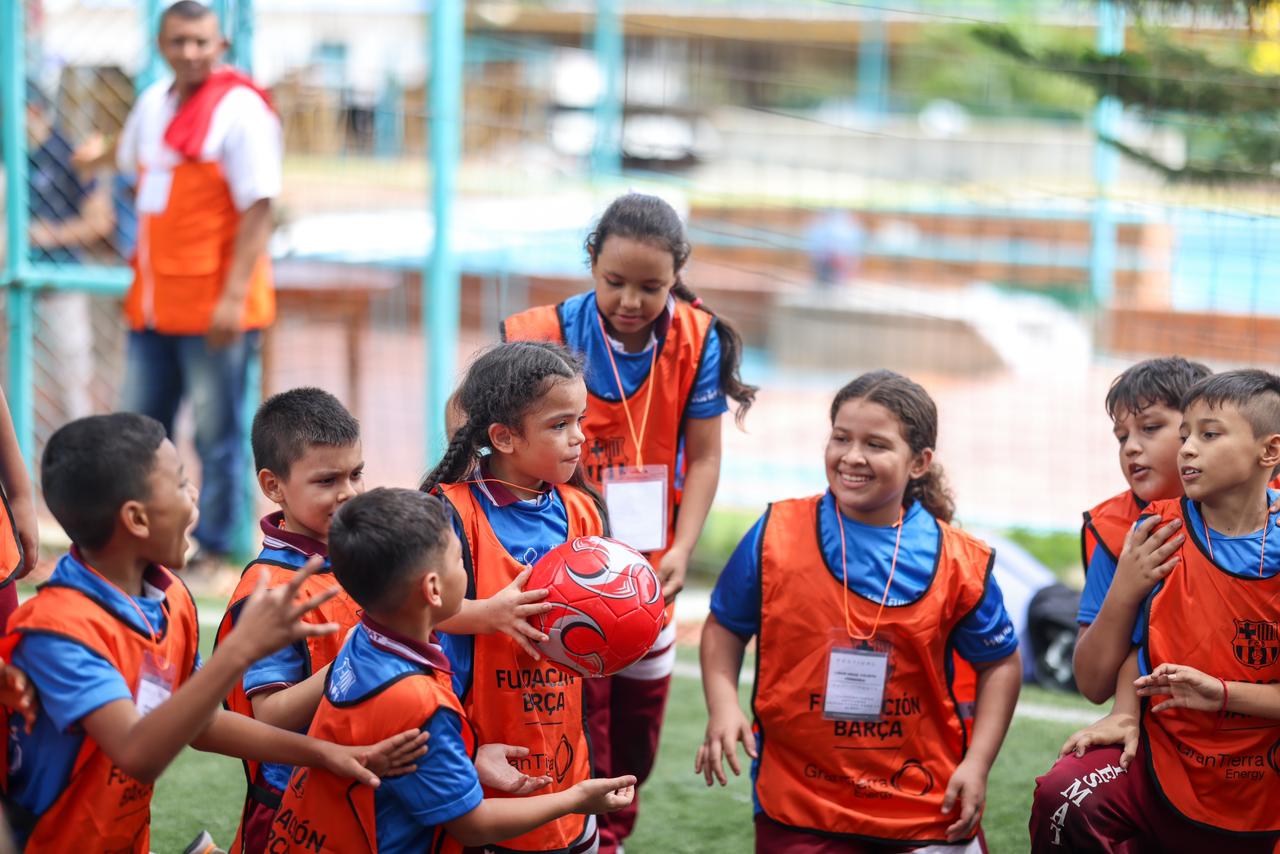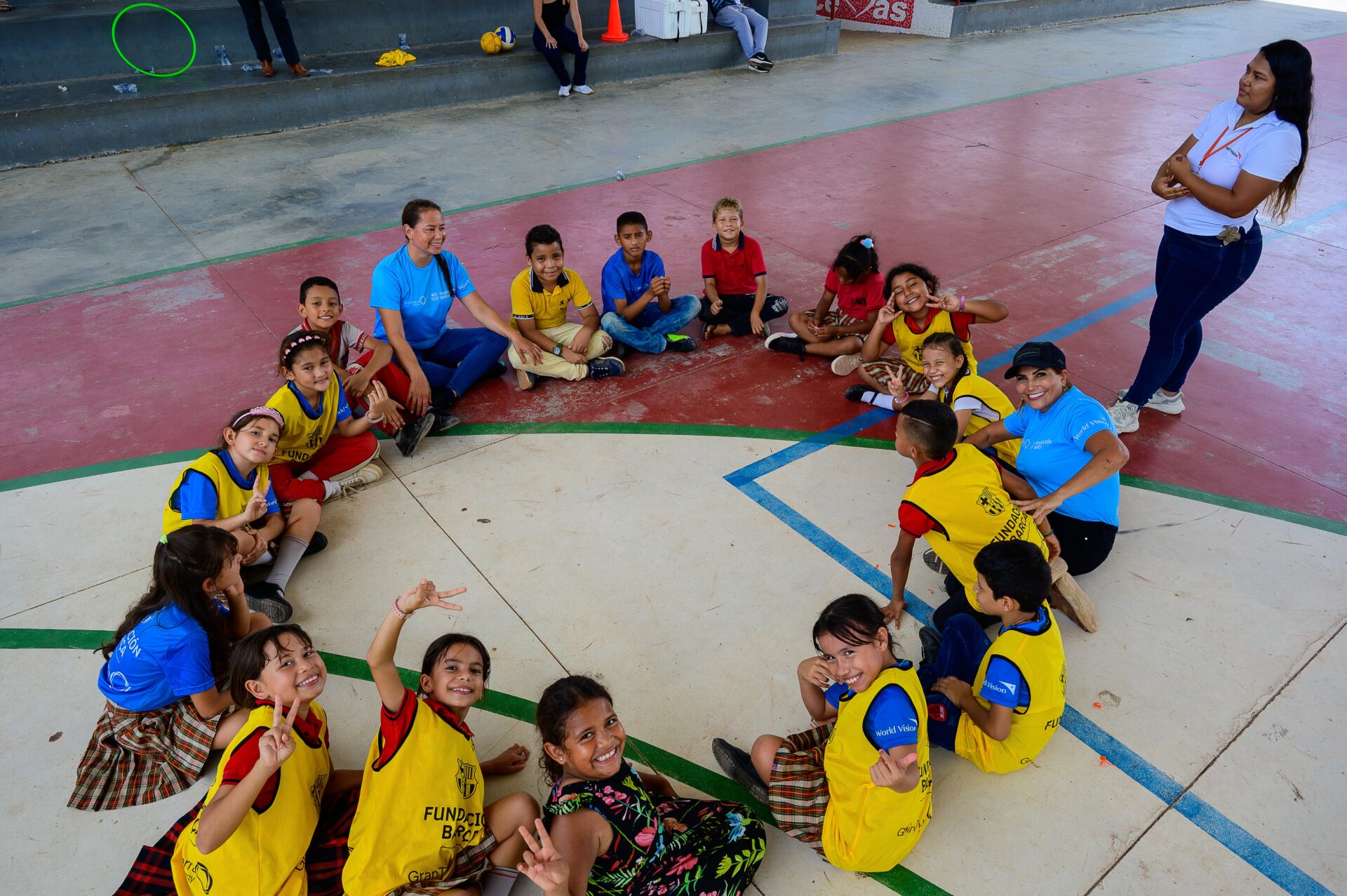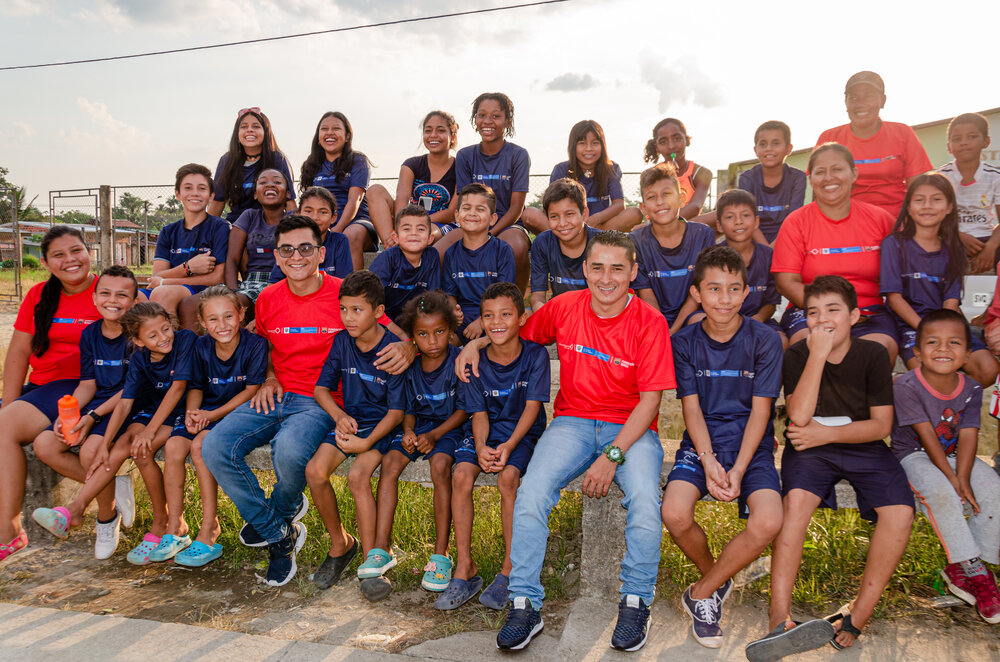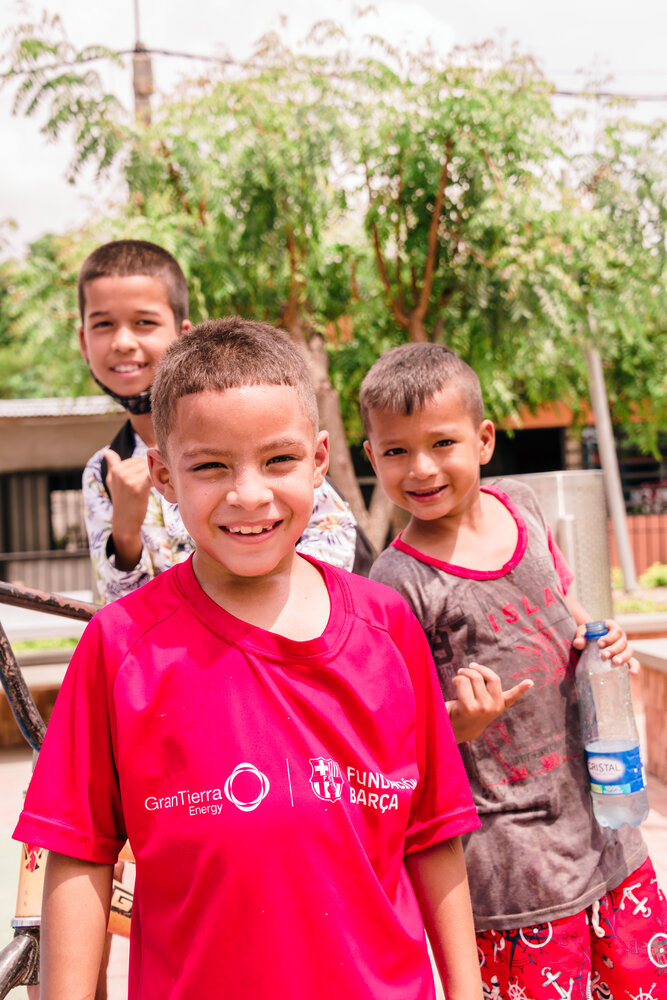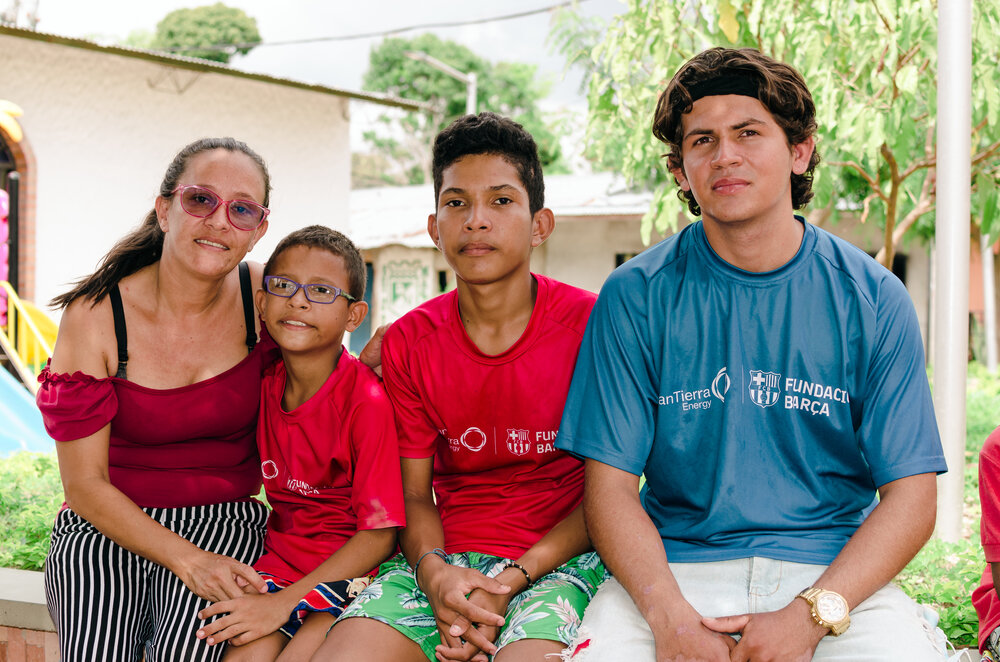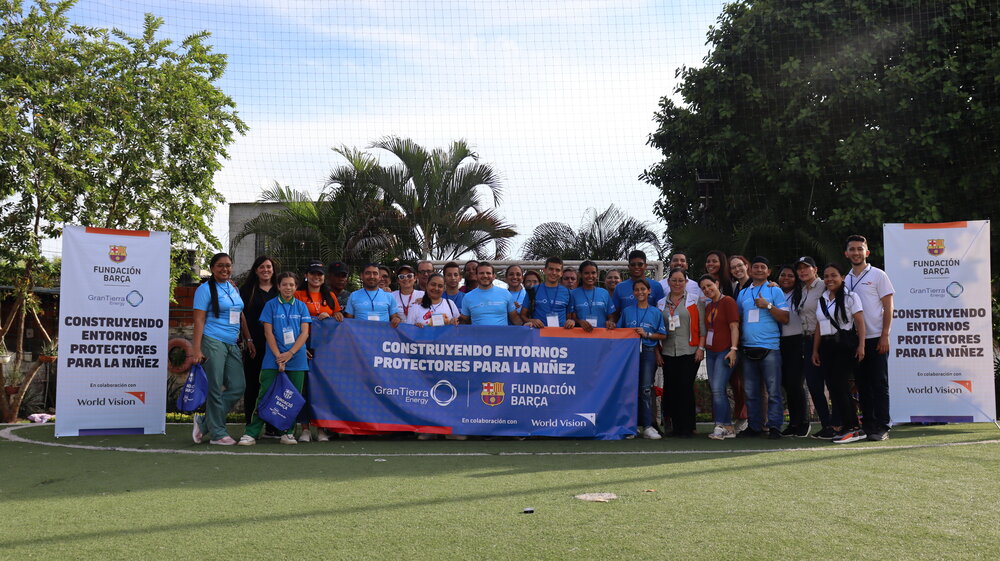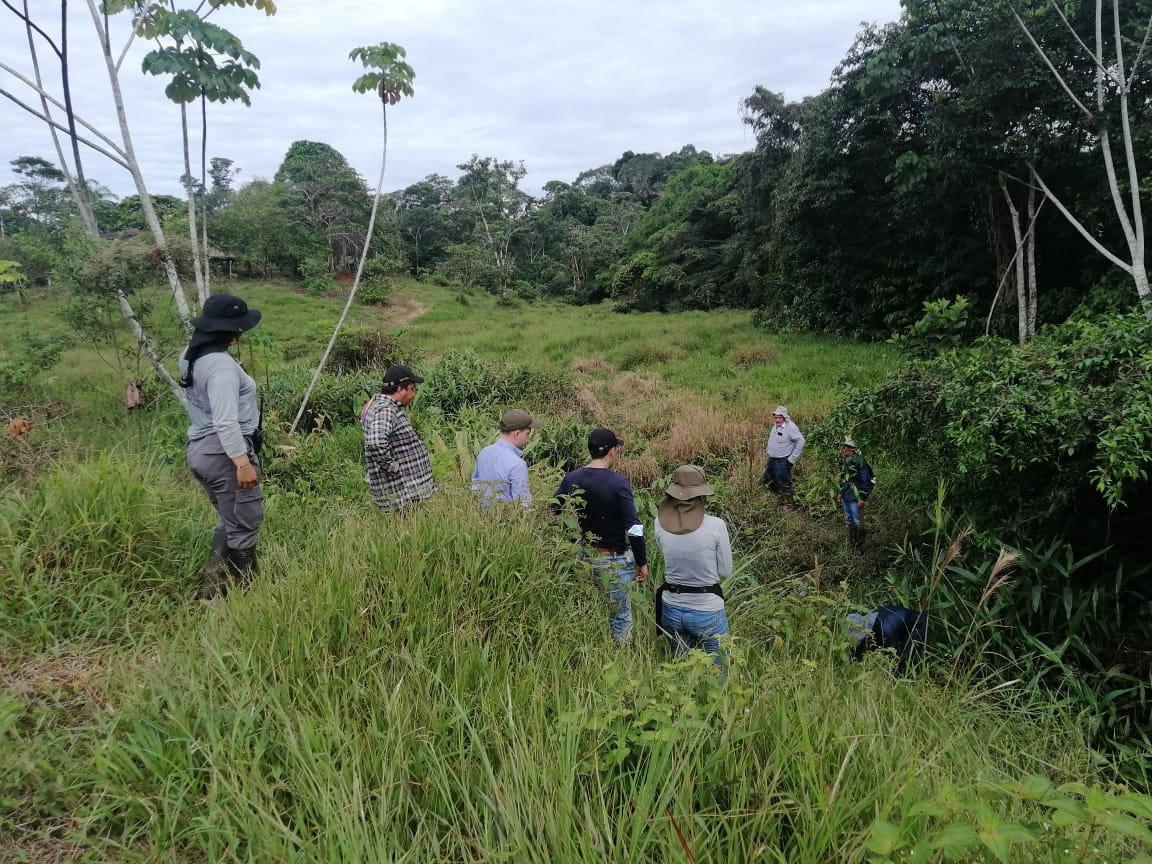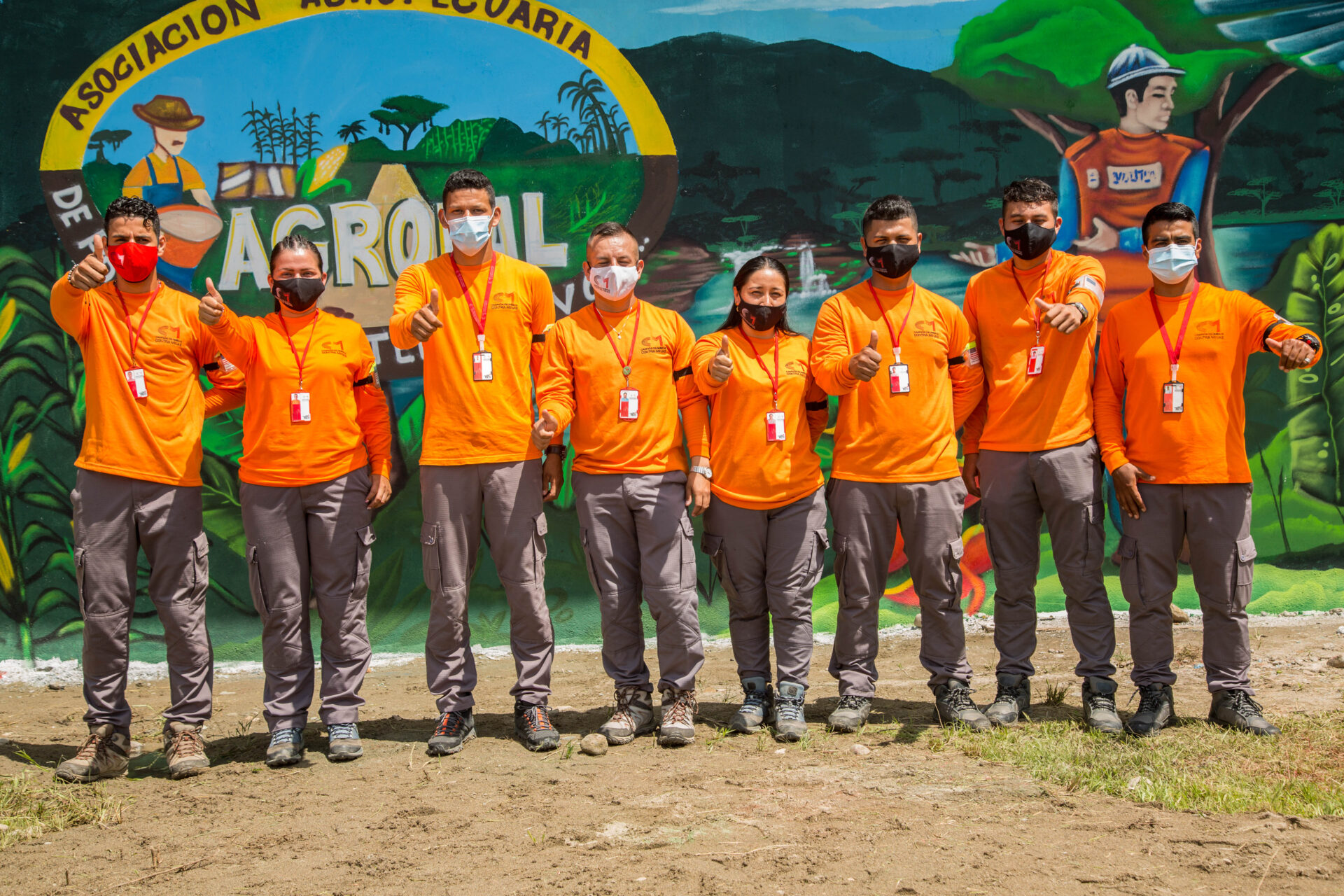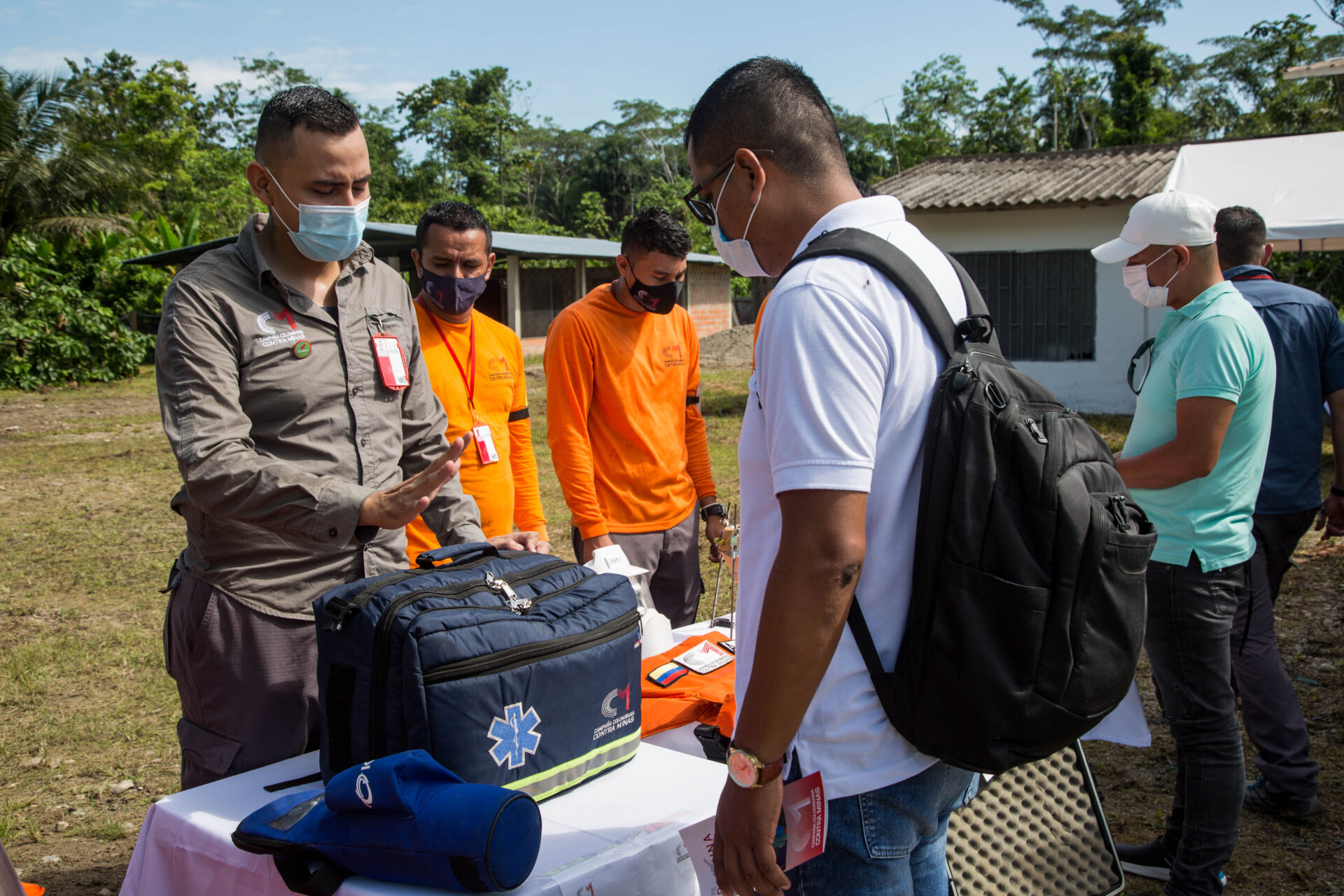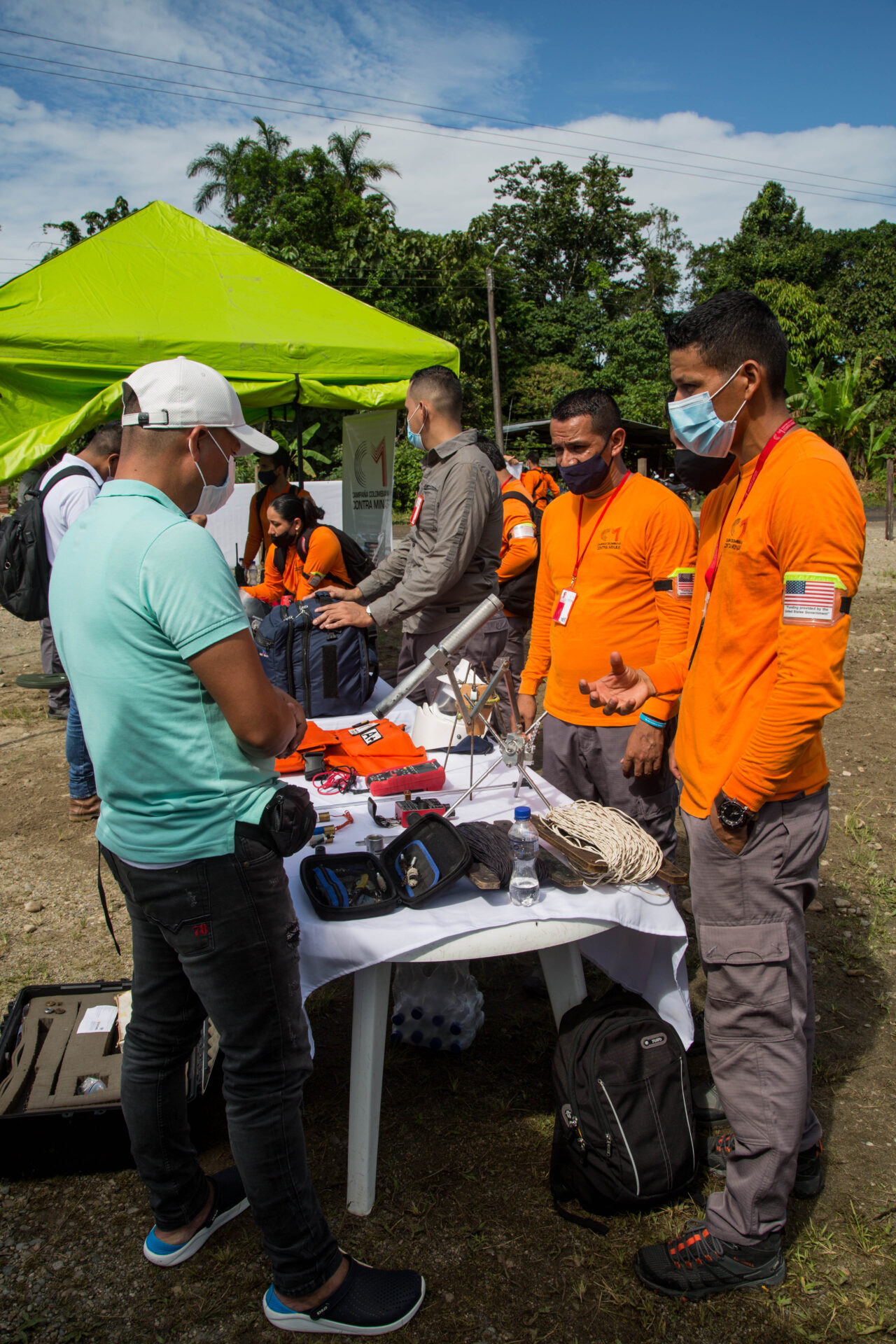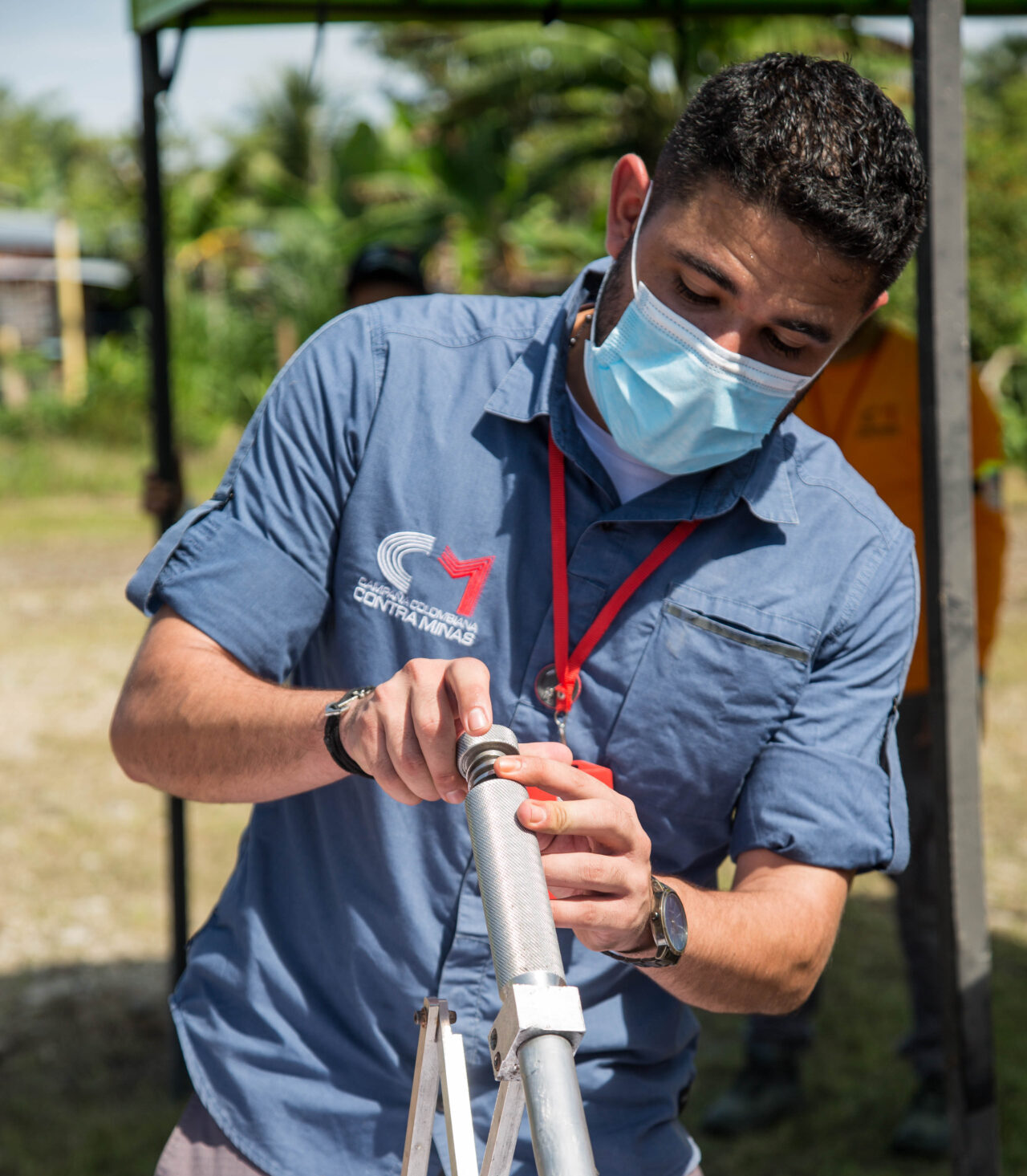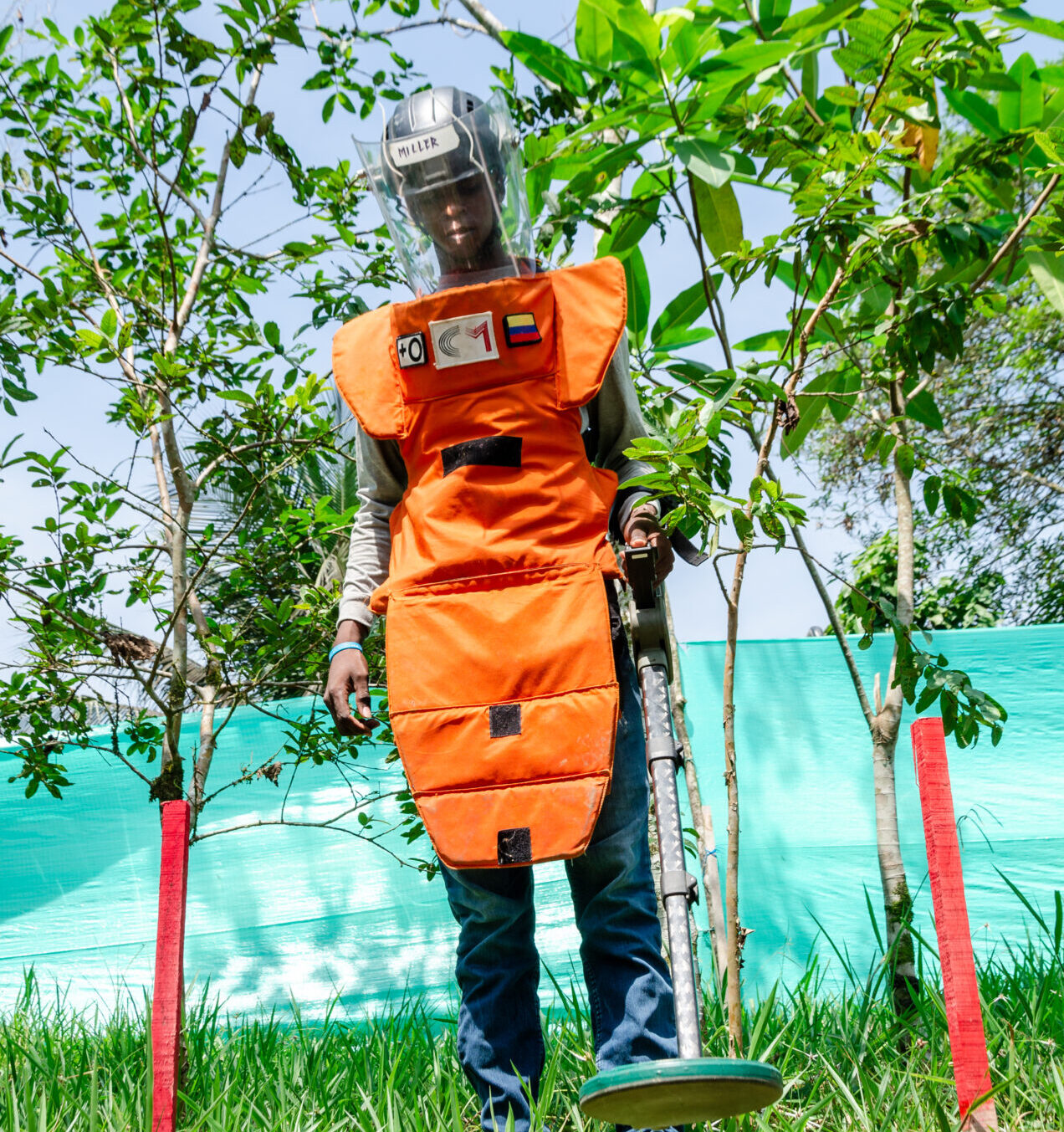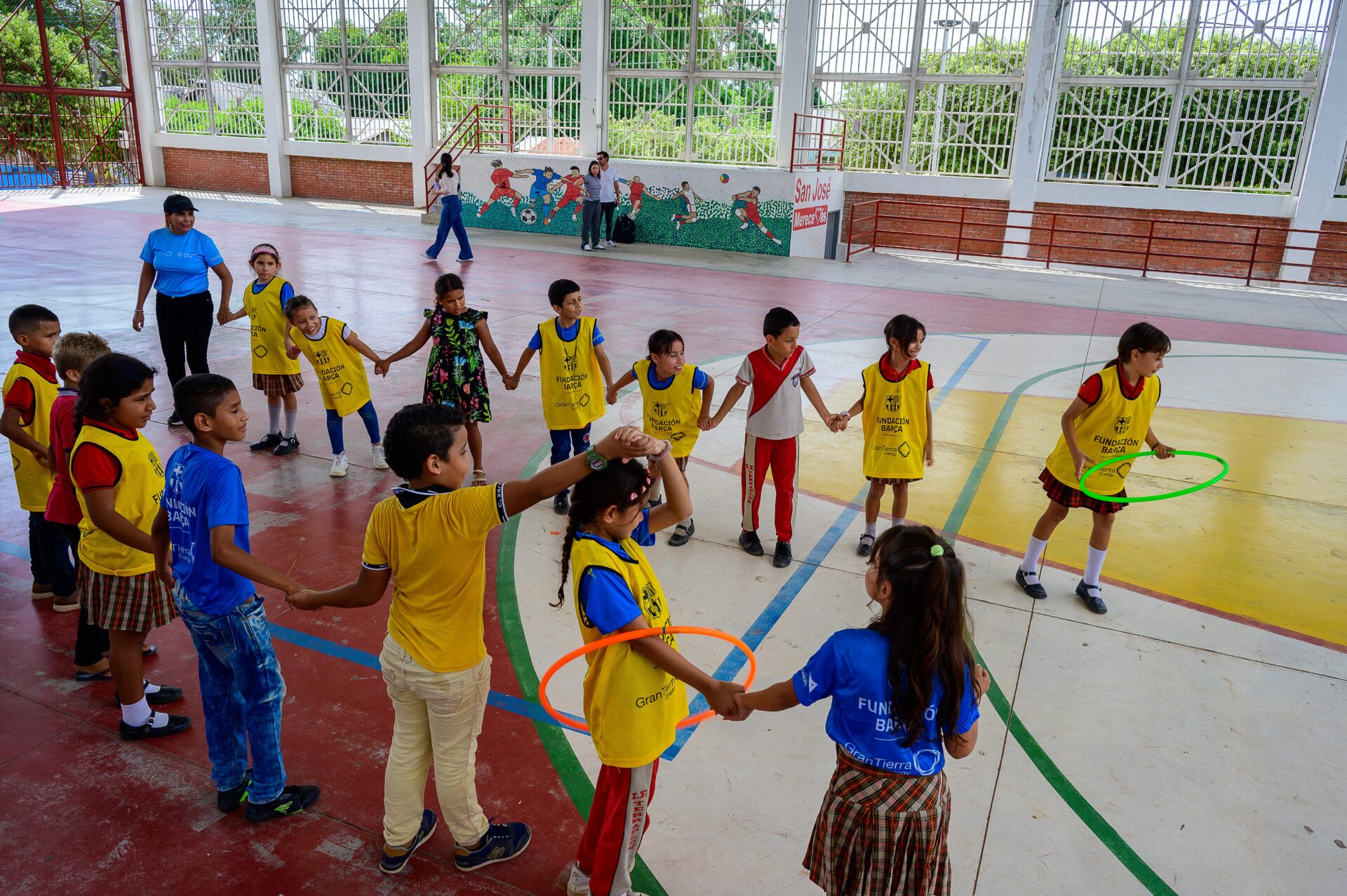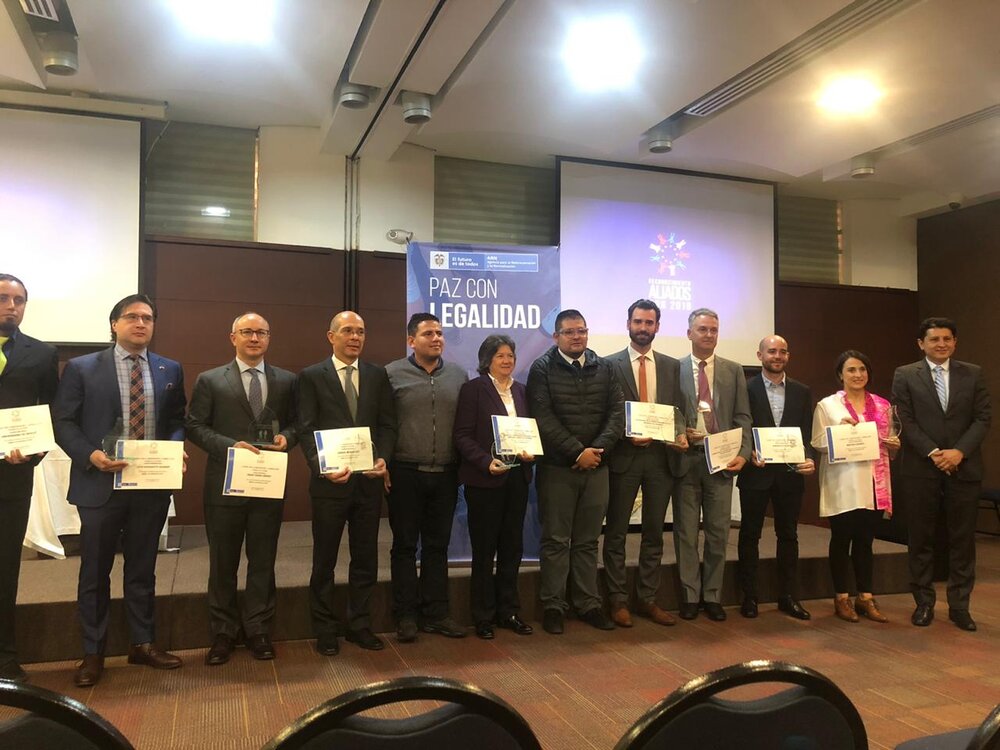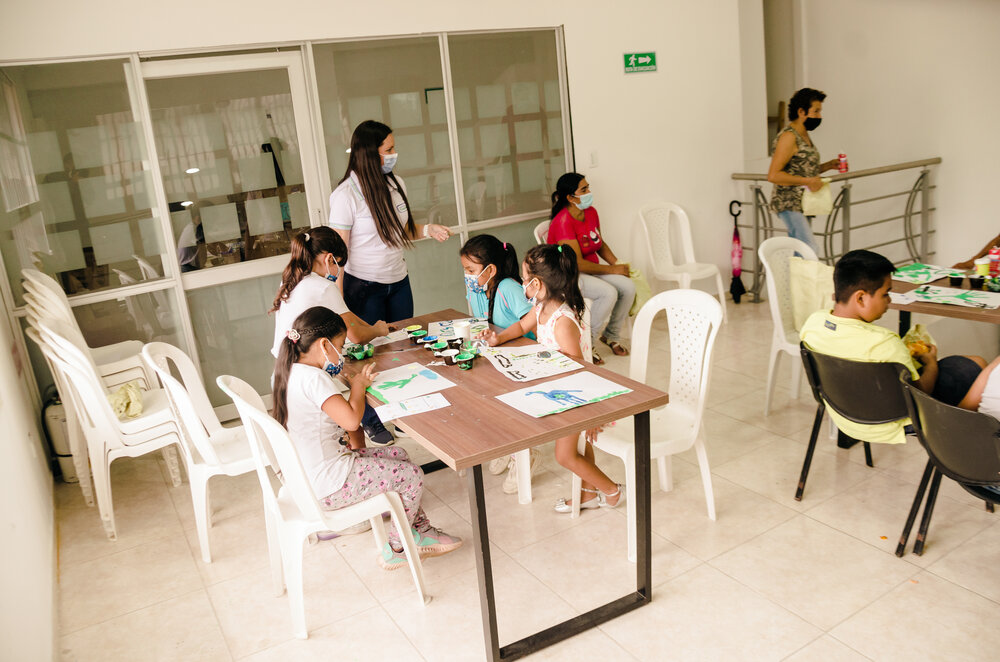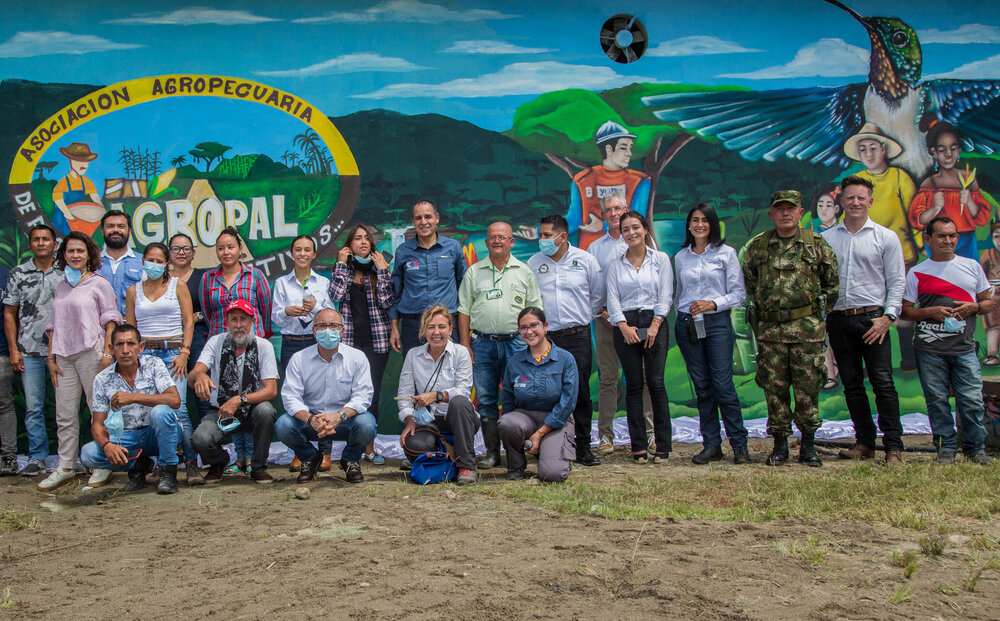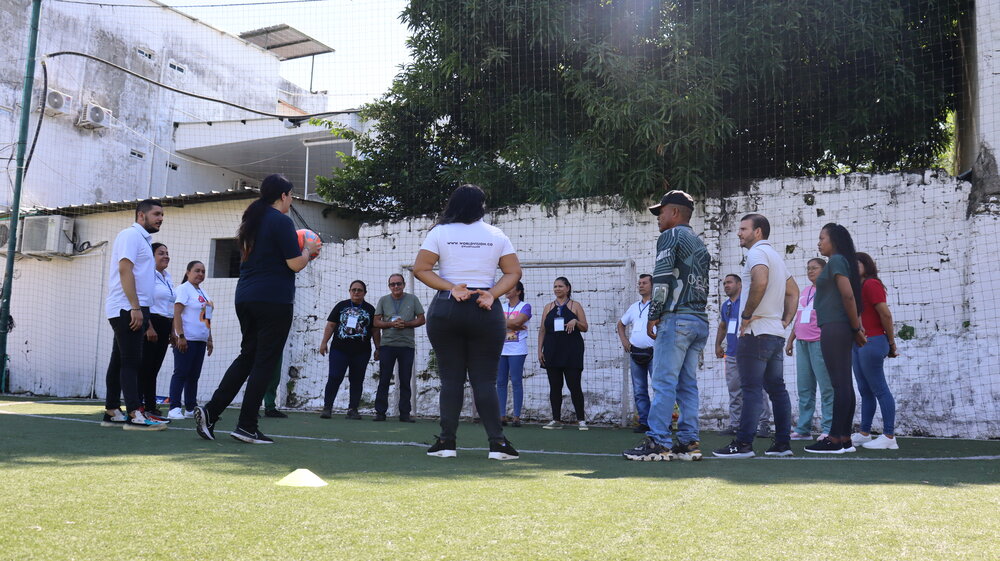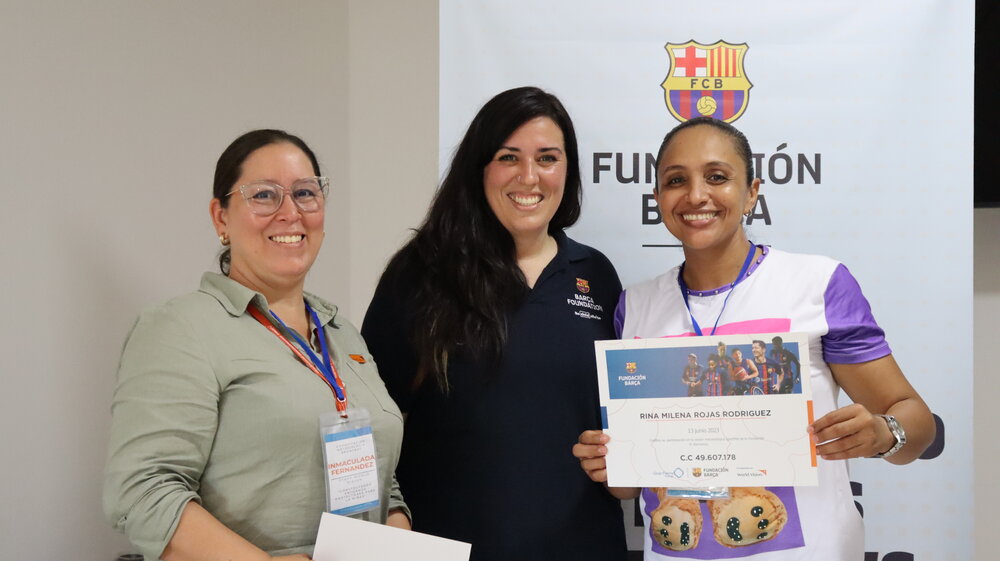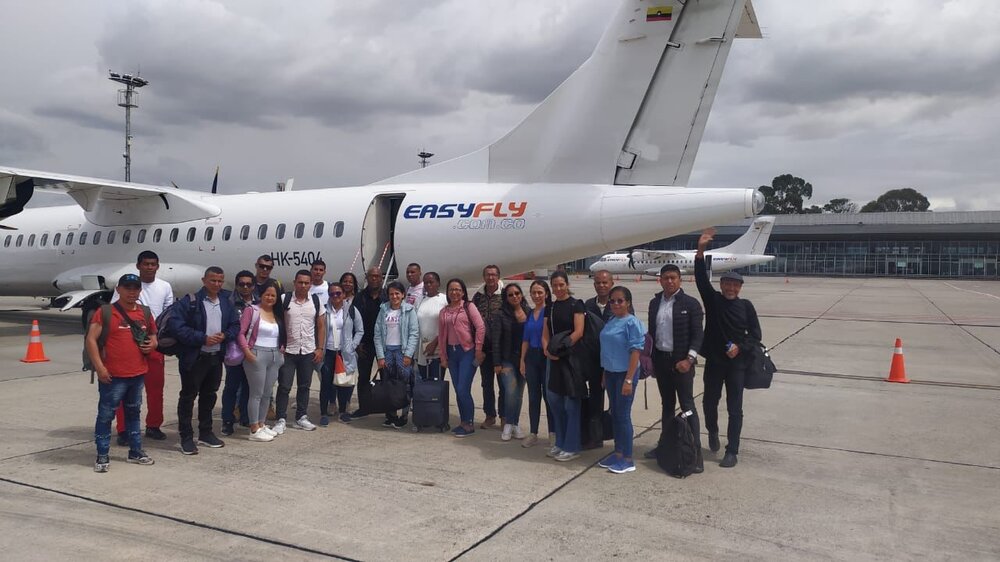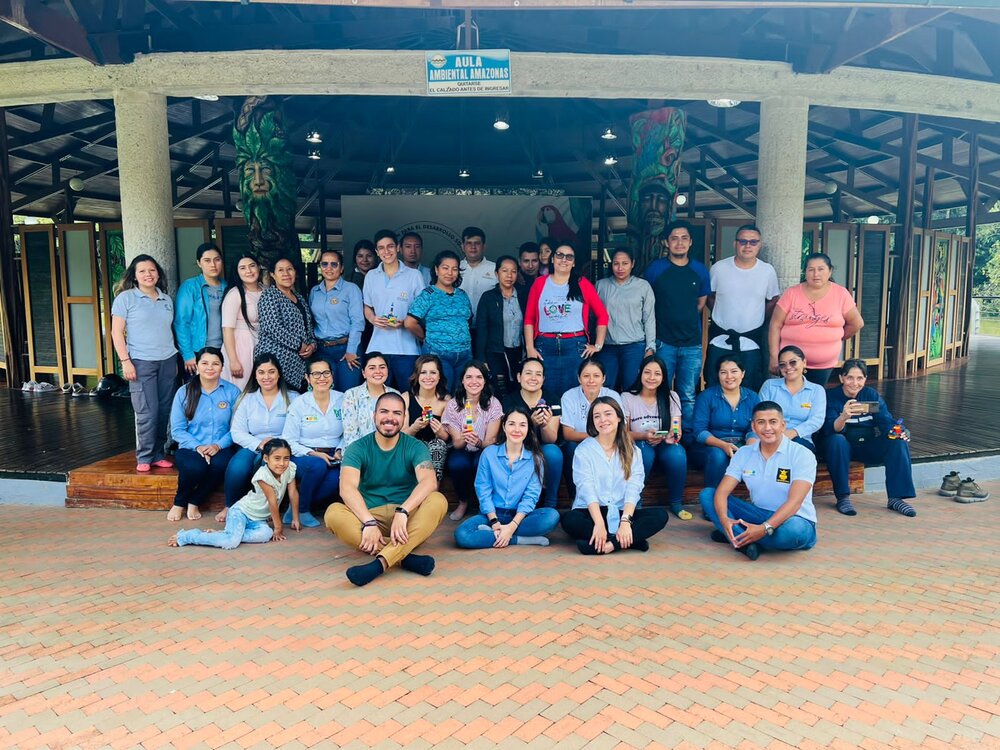Gran Tierra Energy is committed to respect the rights of employees, contractors, suppliers, and communities within its area of influence in the development of all of its operations and activities.
Although the primary responsibility for the protection of human rights lies with government, GTE promotes and respects these rights through joint actions between society, business and institutions. Through a Human Rights Risk Assessment process, we evaluate how our activities may impact communities. We engage with local communities to understand their human rights concerns and address incidents through dialogue and remedial action, if appropriate. We have established a culturally appropriate, accessible, responsive and transparent grievance mechanism that enables us to identify and address human rights incidents. GTE also has an open-door policy for dialogue with communities near its operations and a well-developed process for resolving any questions or concerns.
Gran Tierra Energy’s Human Rights Policy was developed with a full commitment to respect the internationally recognized human rights incorporated in the International Bill of Human Rights and the International Labour Organization Conventions (“ILO”), including the fundamental rights principles established in the ILO Declaration on fundamental principles and rights at work. Also, with the commitment to apply relevant international standards including:
- The United Nations (“UN”) Guiding Principles on Business and Human Rights (UNGPs)
- The UN Voluntary Principles for Security and Human Rights
- The Organization for Economic Cooperation and Development (OECD) Guidelines for Multinational Enterprises
- The OECD Due Diligence Guidance for Responsible Business Conduct
- The UN 2030 Agenda for Sustainable Development and Gran Tierra´s Code of Business Conduct & Ethics
| What are the Voluntary Principles on Security and Human Rights? | The Voluntary Principles on Security and Human Rights is a multi-stakeholder initiative with government, civil society and company participants. It promotes implementation of a set of principles that guide extractive companies on how to provide security for their operations in a manner that respects human rights. |
|---|---|
| What are the Guiding Principles of the United Nations on Business and Human Rights? | The UN Guiding Principles on Business and Human Rights are the authoritative global standard on business and human rights, unanimously endorsed by the UN Human Rights Council. The 31 principles set expectations of states and companies about how to prevent and address negative impacts on human rights by business. |
GTE continues to take actions at multiple levels to guide its human rights practices:
- Consolidates its human rights and business strategies, with the objective of securing the Company’s reputation as a leader in its approach to human rights.
- GTE also prioritizes having a proactive approach to gender equality/parity and supporting vulnerable populations, such as Indigenous and Afro-Colombian communities and children.
- In 2024, GTE was accepted as a member of the Voluntary Principles on Security and Human Rights (VPI)—a globally recognized initiative that advances best practices in security and Human Rights. By adopting the initiative’s tools and guidelines, GTE can more effectively assess and address Human Rights risks, strengthen relationships, and create safer environments for the people and communities near our operations.
There are three main stakeholders when it comes to Gran Tierra’s Corporate Human Rights Policy:
- Employees, Contractors and Suppliers: All employees and contractors receive human rights training. Employees are also trained in the prevention of human rights violations inside and outside the company. Contractors will be required to train their employees to prevent such practices. Employees are supported by a full-time human rights attorney whose job is to ensure that everything the company undertakes, complies with the Voluntary Principles on Human Rights. All GTE employees, contractors and suppliers have the obligation of knowing and respecting the Human Rights policy.
- Local Communities: GTE is committed to a transparent, culturally appropriate and accessible grievance and claim mechanisms that will help facilitate an effective response to any potential incident related to Human Rights.
- State Institutions: GTE will maintain an open dialogue with the local, regional and national government regarding security and Human Rights issues related to the operation. GTE will keep track of Human Rights investigations related to Company operations, and report to the authorities as soon as it becomes aware of any incident.
The following stories illustrate the extent to which GTE is committed to safeguarding the Human Rights of its employees, contractors, suppliers, and the communities surrounding our operations.
0
prevention cases
8 cases of forced recruitment were prevented to date
0
hectares
22,400 hectares of land certified free of antipersonnel mines/explosive devices near Puerto Asís and Orito
+0
youths
Over 2,300 youths participated in the Preventing Child Recruitment Program in 2024
SWIPE FOR MORE
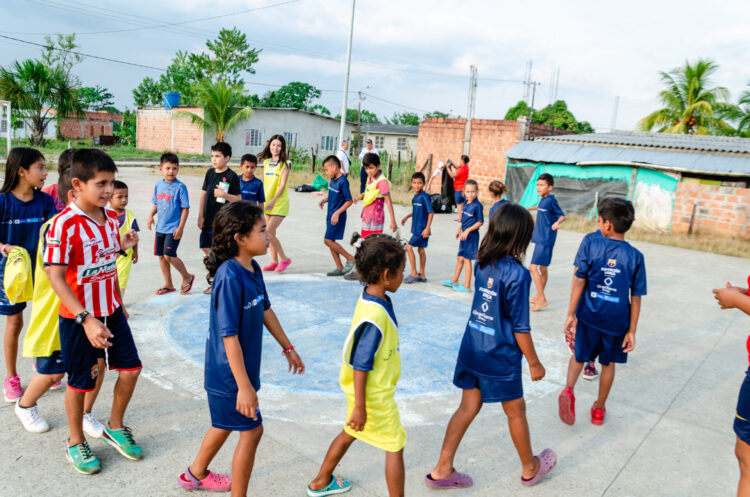
Preventing Child Recruitment in Putumayo
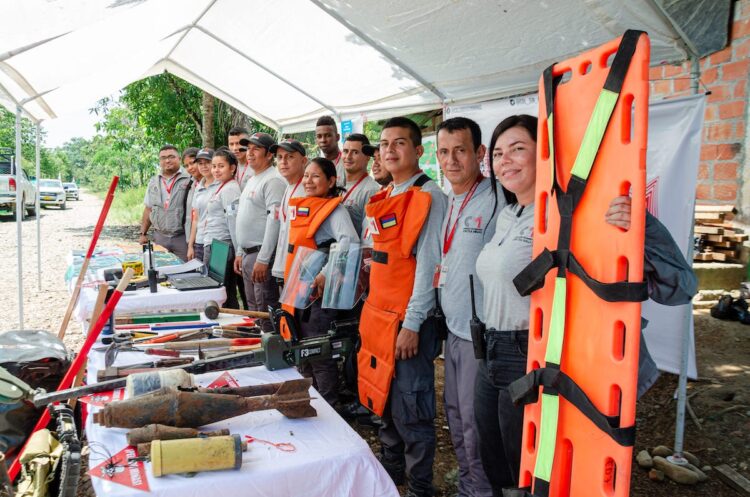
Addressing Legacy Threats to Human Safety
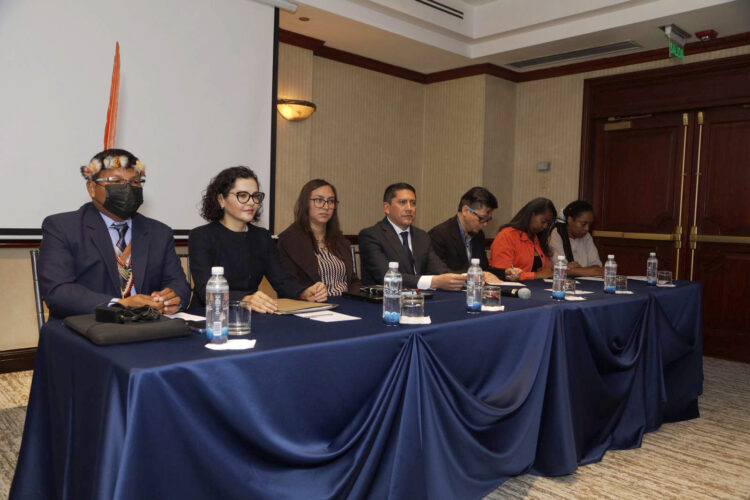
Engaging Leading Human Rights Experts
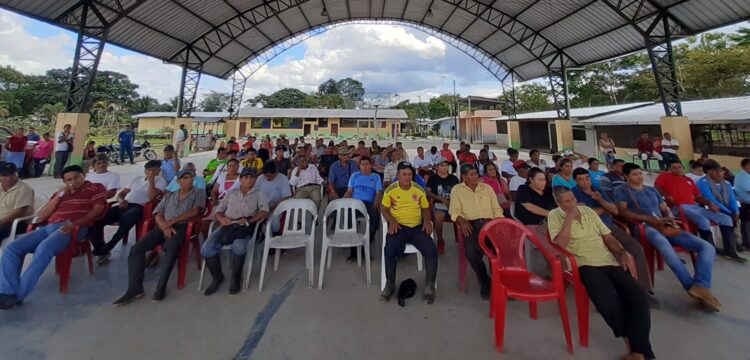
Protecting Human Rights in Ecuador
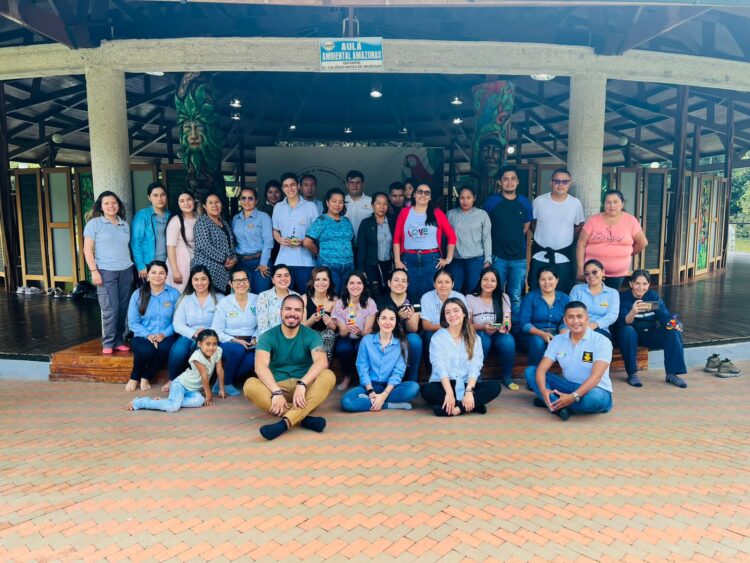
Supporting Colombia’s Reintegration and Reincorporation Efforts
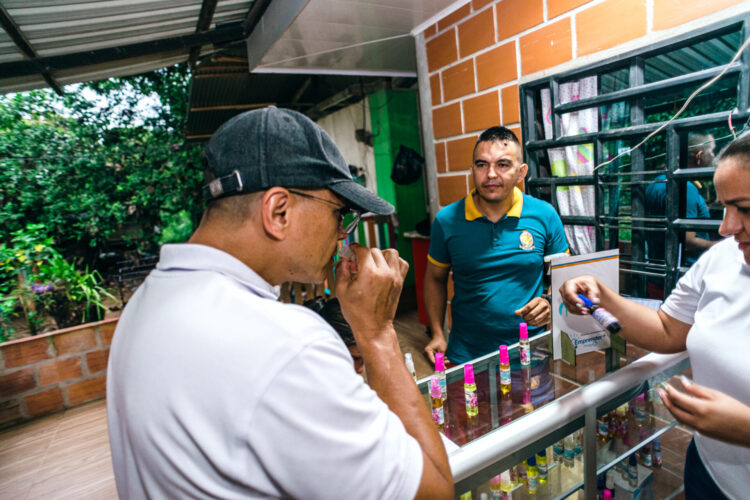
Strengthening Human Rights Throughout the Supply Chain

Supporting our Stakeholders with Human Rights Training
SWIPE FOR MORE
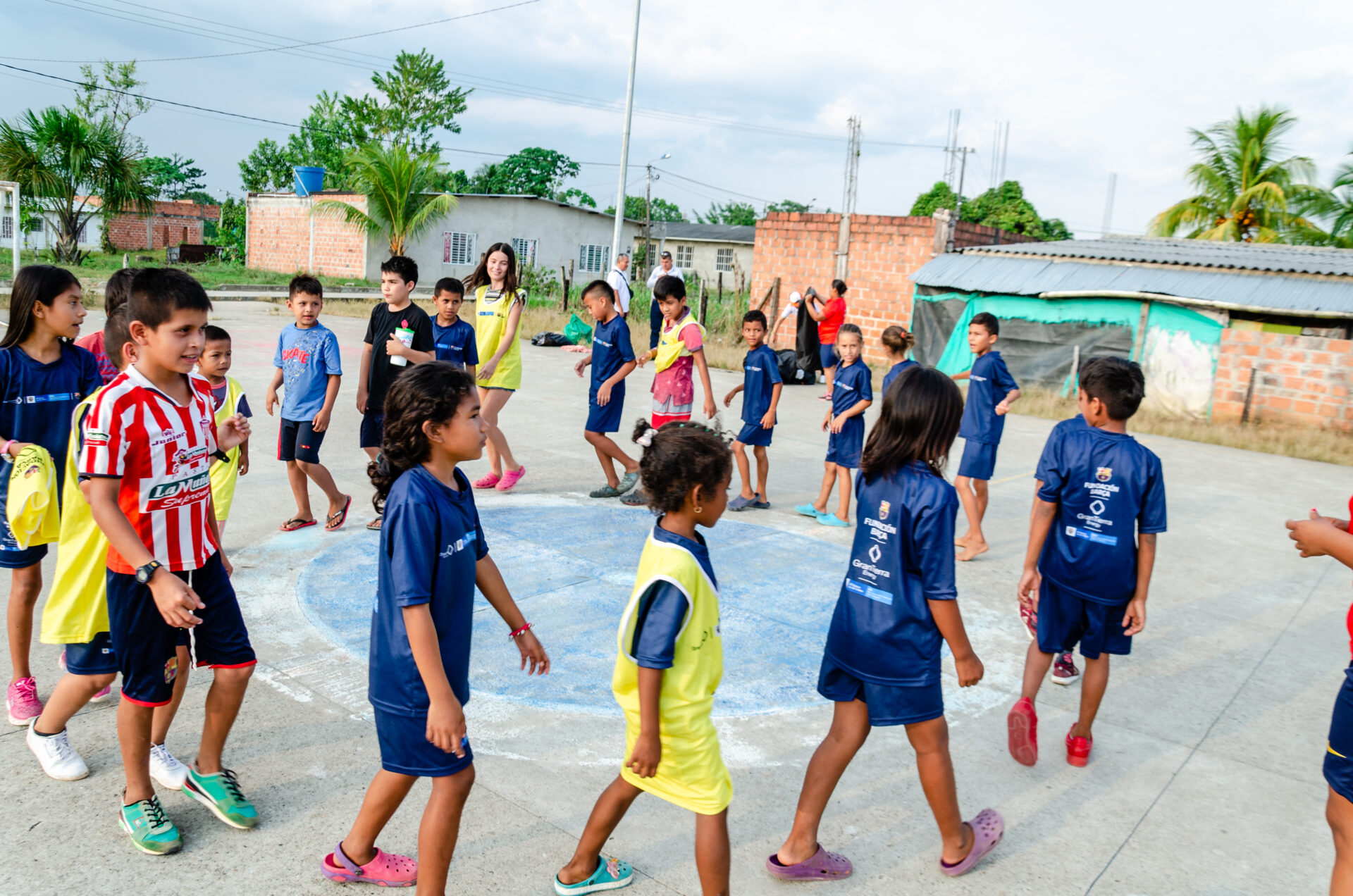
Preventing Child Recruitment in Putumayo
Gran Tierra Energy, the FC Barcelona Foundation, Colombia’s Agency for Reincorporation and Normalization (ARN) and the World Vision International Foundation, continue their strategic alliance to increase resilience in vulnerable children and reduce their susceptibility to two important Human Rights concerns in the area: substance abuse and militia recruitment.
Financed by GTE, the program is implemented by the Youth Violence Prevention Program of the Barça Foundation and uses football as a unifying tool for children from vulnerable populations, children living in poverty and descendants of Afro-Indigenous minorities to learn about conflict resolution, prosocial behaviour development and other important life skills. Expected long-term outcomes include stronger, more stable communities, greater education attainment, increased employment and positive health indicators.
According to the Colombian Family Welfare Institute (ICBF), the project has been effective in preventing forced recruitment of minors, having documented multiple cases of preventions in program participants. To date, the Preventing Child Recruitment Program directly prevented eight cases of forced recruitment and intervened in multiple cases of intrafamily violence, ensuring at-risk children receive protection and care. The project also helps female victims of sexual and physical violence with psychiatric, emotional and legal support.
In 2024, the project Preventing Child Recruitment program exceeded the initially established expectations by over 150%. This extended agreement has benefitted over 2,300 youth, as well as their families. As a result, 5,000 people in the area were positively impacted from this program.

0%
reduction in school dropout rates
Teachers who participated in the program reported a 47% reduction rate in school dropouts
~0
KIDS AGED 6-17
~5,000 children benefit from the Child Recruitment Prevention program, including children living in poverty & descendants of Afro-Indigenous minorities
0
prevention cases
8 cases of forced recruitment were prevented to date
SWIPE FOR MORE
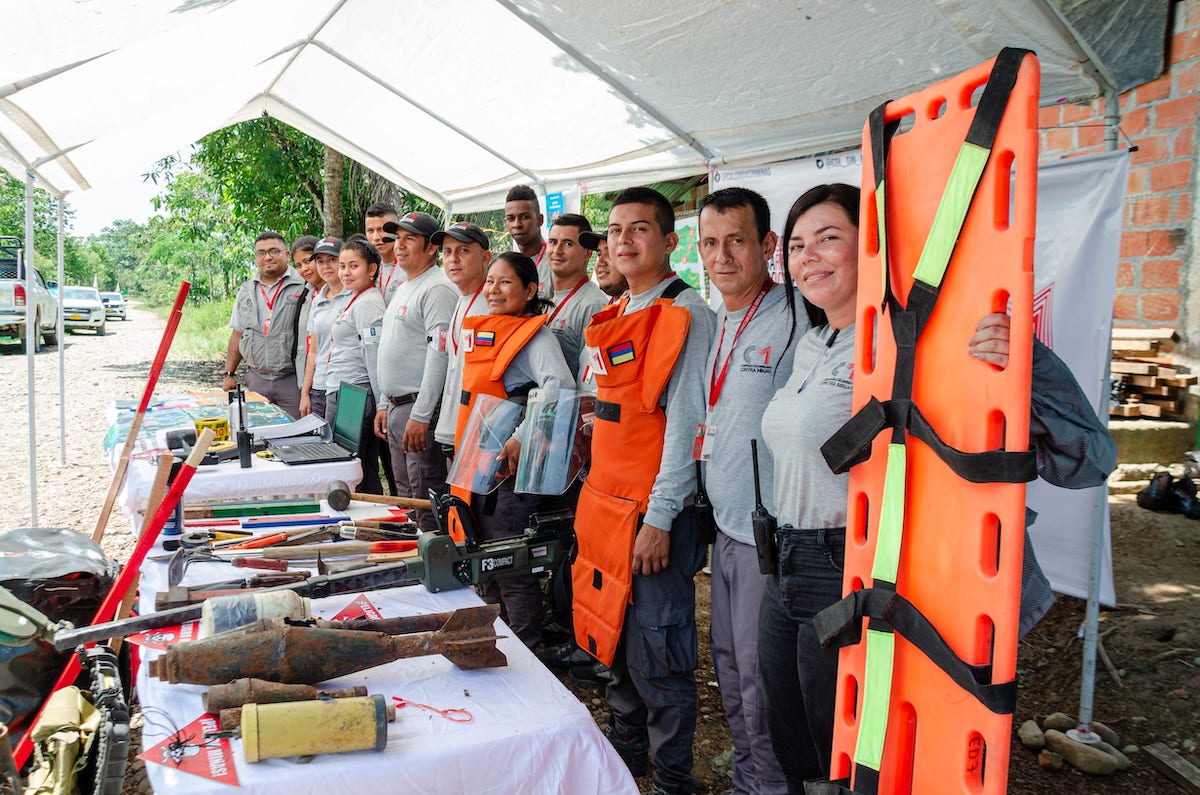
Addressing Legacy Threats to Human Safety
One of the most significant Human Rights threats throughout Colombia is the prevalence of anti-personnel mines and other explosive devices that are an unfortunate legacy of the decades-long conflict in the country.
To address this risk in southern Putumayo where the Company undertakes exploration and development activities, GTE launched a Humanitarian Demining Pilot Project in 2019 with the help of an alliance made up of GTE, the Colombian Campaign Against Mines (CCCM), the Colombian High Commissioner of Peace, Ecopetrol, the United States Department of State and the Norwegian Ministry of Foreign Affairs.
This important demining project has investigated over 57,400 hectares of land that has now been cleared of anti-personnel mines and the Puerto Vega Teteyé area in Puerto Asís has been declared free of contamination.
Because of this project, nearly 3,000 residents of nearby towns can now move about freely along the Puerto Vega-Teteyé corridor without the fear of legacy anti-personnel devices. In 2023, more than 22,400 additional hectares in the municipalities of Puerto Asís and Orito were certified free from antipersonnel mines and explosive devices, and nearly, 300 landmines, unexploded ordinance, and improvised explosive devices have been identified and removed since 2021 with zero accidents and the full support of local communities.
In 2024, GTE helped locate and safely manage eight explosive devices found near its Cohembi field in Colombia. This initiative has improved the living conditions of 972 residents, contributing to a safer environment and promoting respect for the right to life and security in these regions.
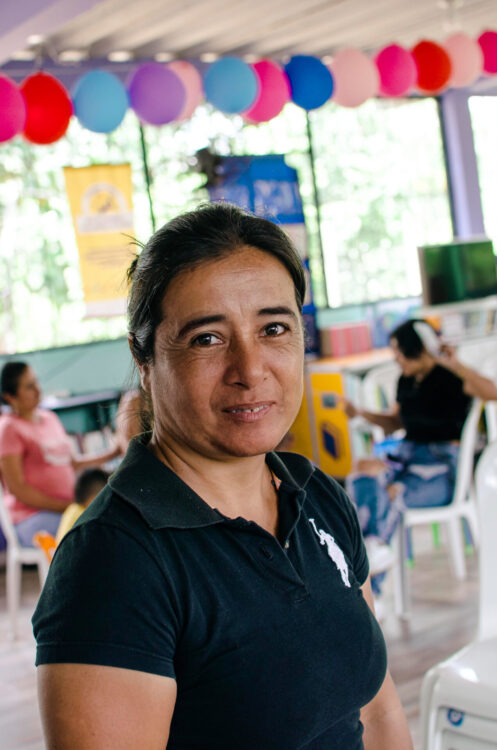
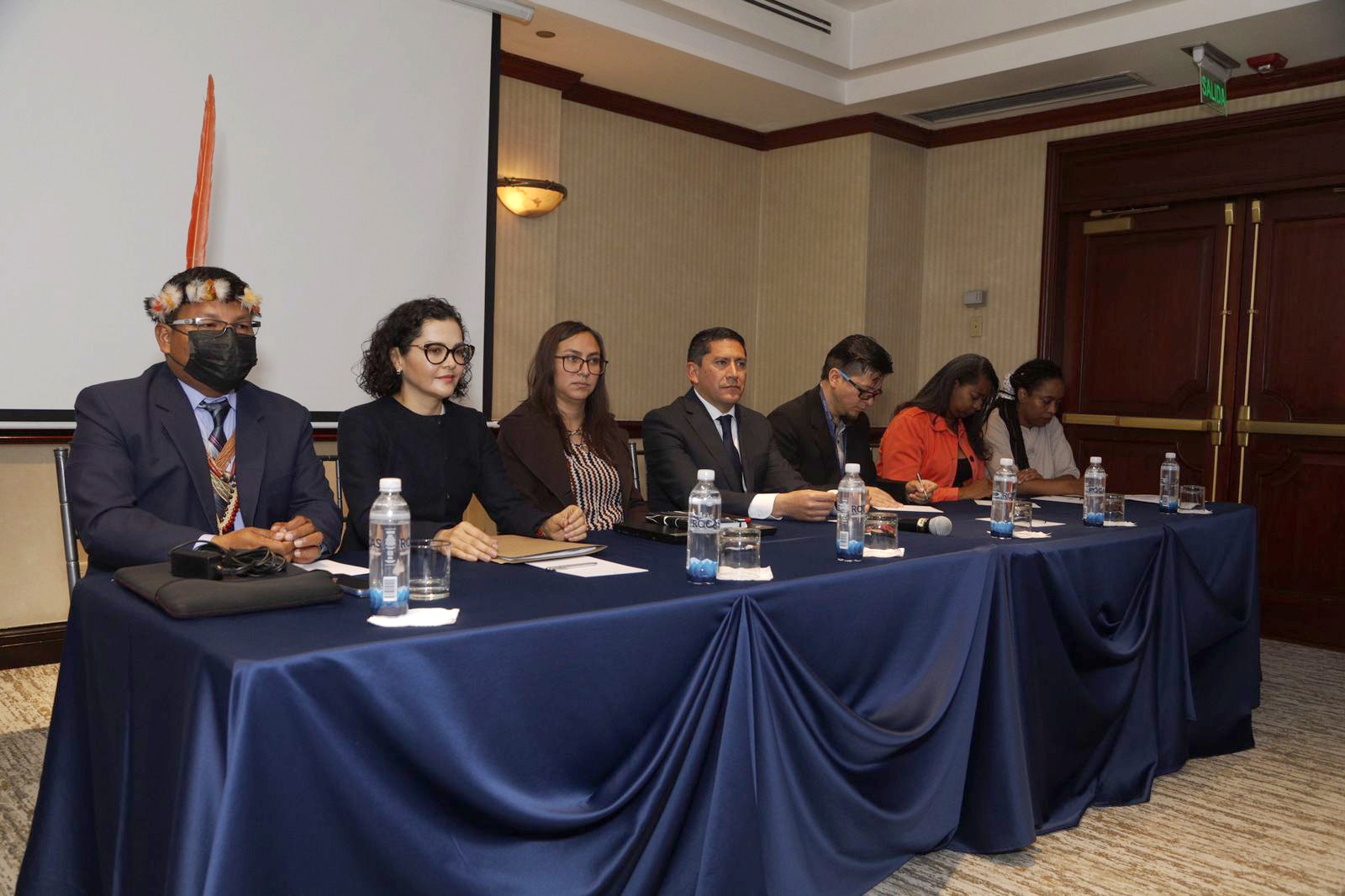
Engaging Leading Human Rights Experts
GTE and renowned business and human rights experts Shift first collaborated in 2019 to identify and work to address human rights issues related to GTE’s business operations and value chain. Shift is the leading centre of expertise on the United Nations Guiding Principles on Business and Human Rights (UNGPs). The nonprofit organization at one point was chaired by the late John Ruggie who authored the Guiding Principles during his mandate as the UN Secretary-General’s Special Representative on Business & Human rights.
Shift introduced GTE staff to a methodology for effectively assessing human rights risks. Shift also facilitated discussions with GTE’s management, corporate responsibility personnel and other field staff at the Company’s operations sites in Colombia and Ecuador, in order to build additional capacity within the Company for managing human rights issues.
With operations in Ecuador currently growing, in 2023 and 2024, the Company carried out training led by Shift, on the standards of the Guiding Principles of Human Rights and Business. This training workshop was attended by supply chain partners, government officials and civil society organizations. In 2023, the Company also held a session with 19 local supply chain partners in Lago Agrio, communicating its Human Rights Policy, operating philosophy, and the requirements to apply its corporate policies and contractual clauses that speak to the respect and protection of Human Rights.
The partnership between Shift and GTE continues today. Gran Tierra is one of 18 companies that participate in Shift’s Business Learning program, which was designed to support companies that are committed to working to fulfill their responsibility to respect Human Rights. In order to qualify for the program, participants must meet the following criteria:
- Evidence of high-level commitment to business and Human Rights
- Demonstrated organizational capacity to drive the implementation process
- Support for the broader, mission-driven learning approach
- Coherence with Human Rights principles

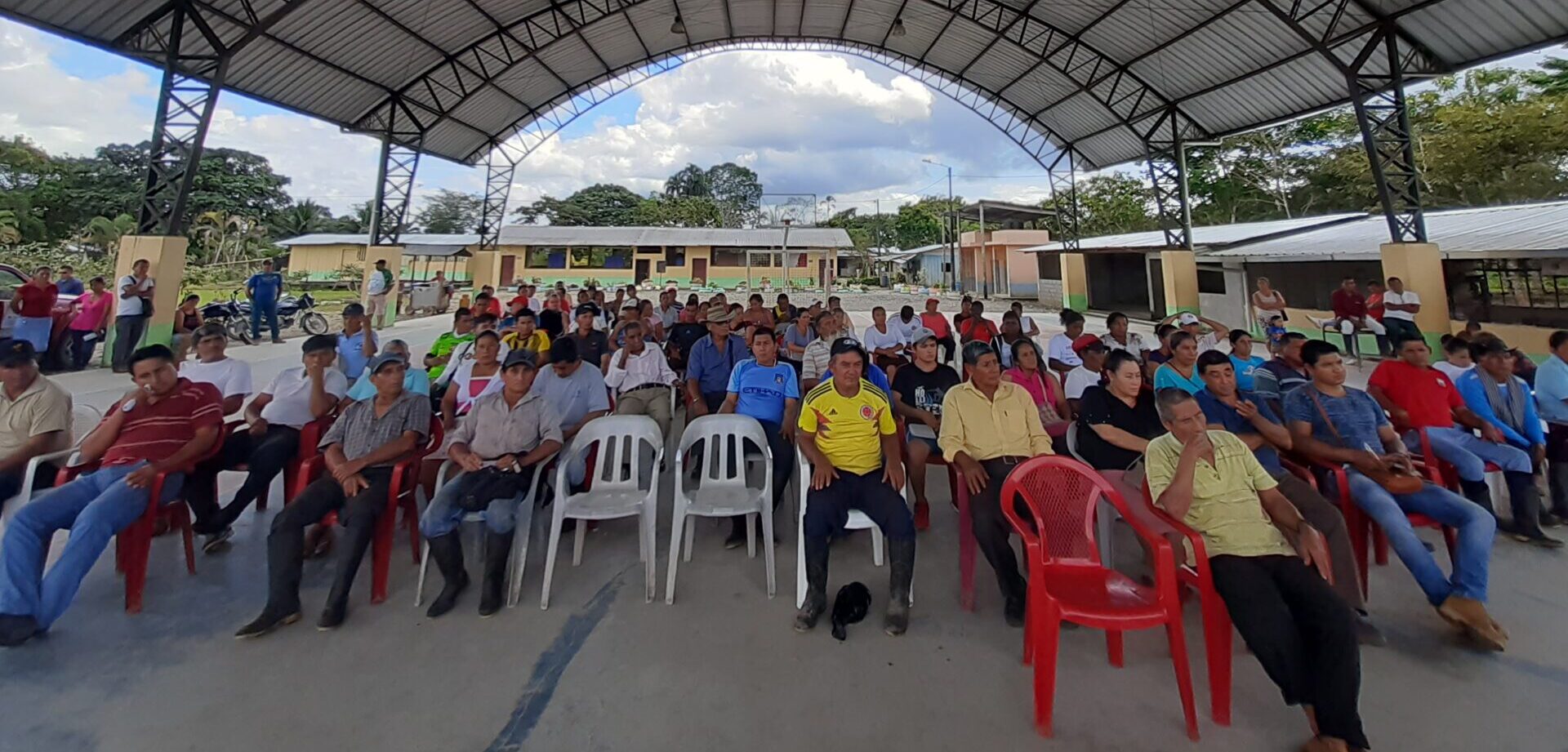
Protecting Human Rights in Ecuador
As a new operator in a country, Gran Tierra must contend with industry legacy impacts that the region may have had. While it is a new company for local Ecuadorian populations in the Sucumbíos province, Gran Tierra’s international experience as a responsible business partner has prepared it well to meaningfully engage communities and manage Human Rights risks in Ecuador. Continued proactive relationship building efforts are key factors in the Company’s ability to demonstrate its respect for protecting Human Rights and its commitment to protecting health safety and the environment to its neighbours.
Prior to any exploration and development work taking place in Ecuador, a Human Rights and Environmental training session was conducted for 35 leaders in the area of influence of GTE’s operations. The session was intended to share knowledge and provide tools to better understand the international rules and regulations that exist to help protect Human Rights, the Environment, and natural resources.
Access to information is a right that Gran Tierra promotes in the regions where it operates. In Ecuador, the Company has implemented a Transparency Committee as an innovative way to facilitate trust and relationship building between communities, local authorities, and GTE. In 2024, GTE held 16 Transparency Committee meetings with neighbouring communities, involving leaders from eight different communities. The Committee guarantees a space for dialogue, transparency and community participation to validate regulations, agreements and commitments.

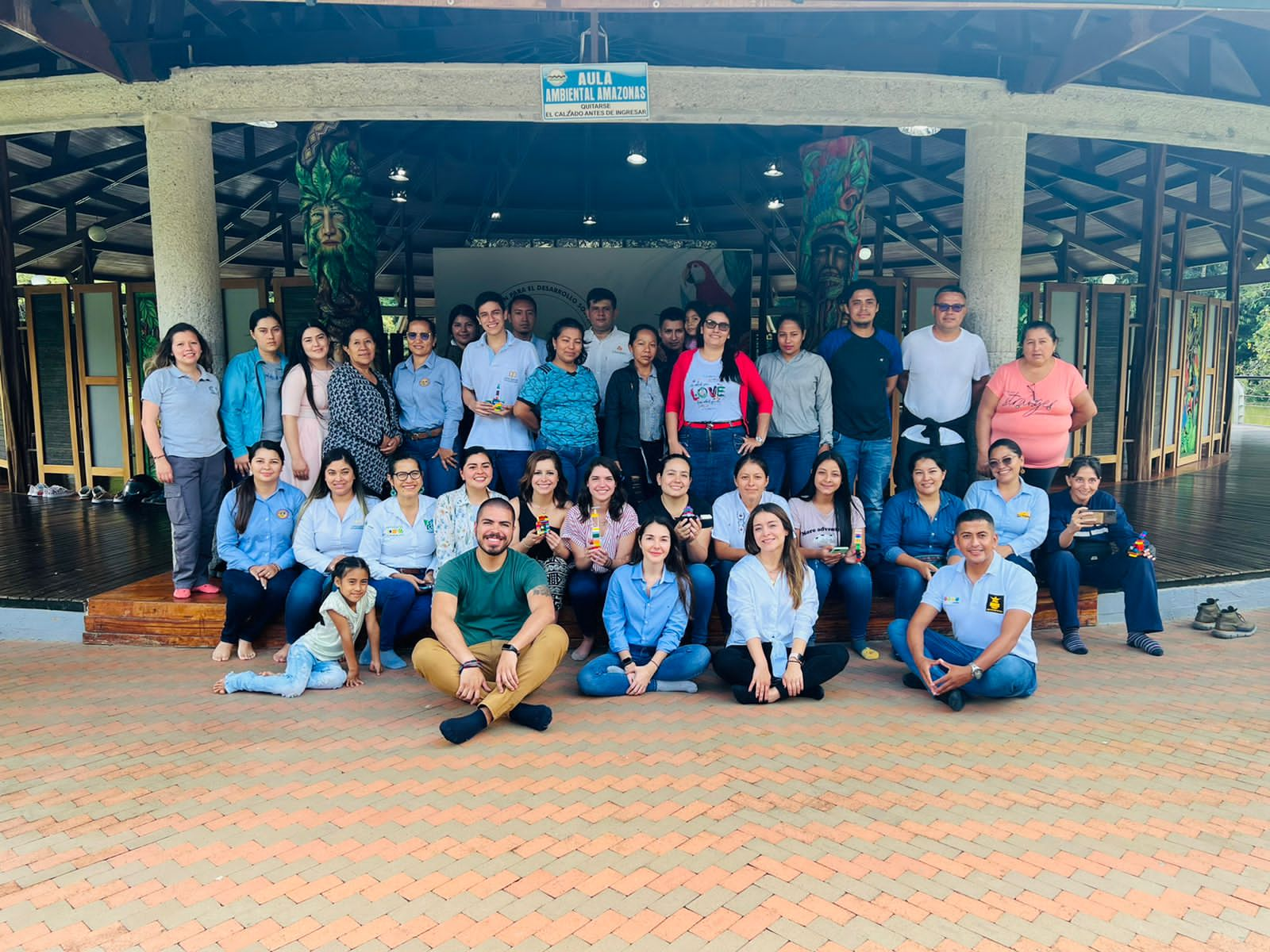
Supporting Colombia’s Reintegration and Reincorporation Efforts
A number of GTE’s efforts are focused on supporting the Colombian government’s reintegration of ex-combatants back into Colombian society. The dynamics of post-conflict situations are complex, but the objective is simple: to support the country’s efforts at achieving lasting peace. Creating economic opportunities is one of the critical issues facing the reintegration of 13,000 ex-combatants back into Colombian society.
Providing these individuals with viable economic opportunities is instrumental in ensuring their successful transition from a life marked by conflict and violence to one characterized by stability and productivity. By facilitating access to employment, training, and entrepreneurship opportunities, GTE contributes to the broader objective of encouraging ex-combatants to become self-sufficient, law-abiding citizens. When individuals are gainfully employed and can support themselves and their families through legitimate means, they are far less likely to revert to the activities that led to their involvement in conflict.
GTE’s successful reintegration and peace process will help strengthen the civil society and the economic underpinnings of the country. GTE has been recognized for its commitment to multiple Human Rights projects supporting Colombia’s reintegration efforts by the Agency for Reincorporation and Normalization (ARN).
GTE’s reintegration contributions are made through the following Human Rights programs:
- Cacao Nurseries
This program created by Gran Tierra Energy and Fedecacao provided participants with nurseries and the opportunity to grow and sell cacao with technical support and guidance from experts in the field. - Preventing Child Recruitment Program
This program works to prevent the forced recruitment of girls and boys by using football as a unifying tool for children to learn about conflict resolution, prosocial behaviour development and other important life skills. Ex-combatants, who are reintegrated into society, have an opportunity to share their stories and teach future generations how and why to avoid recruitment. Click here to learn more about the Preventing Child Recruitment program.
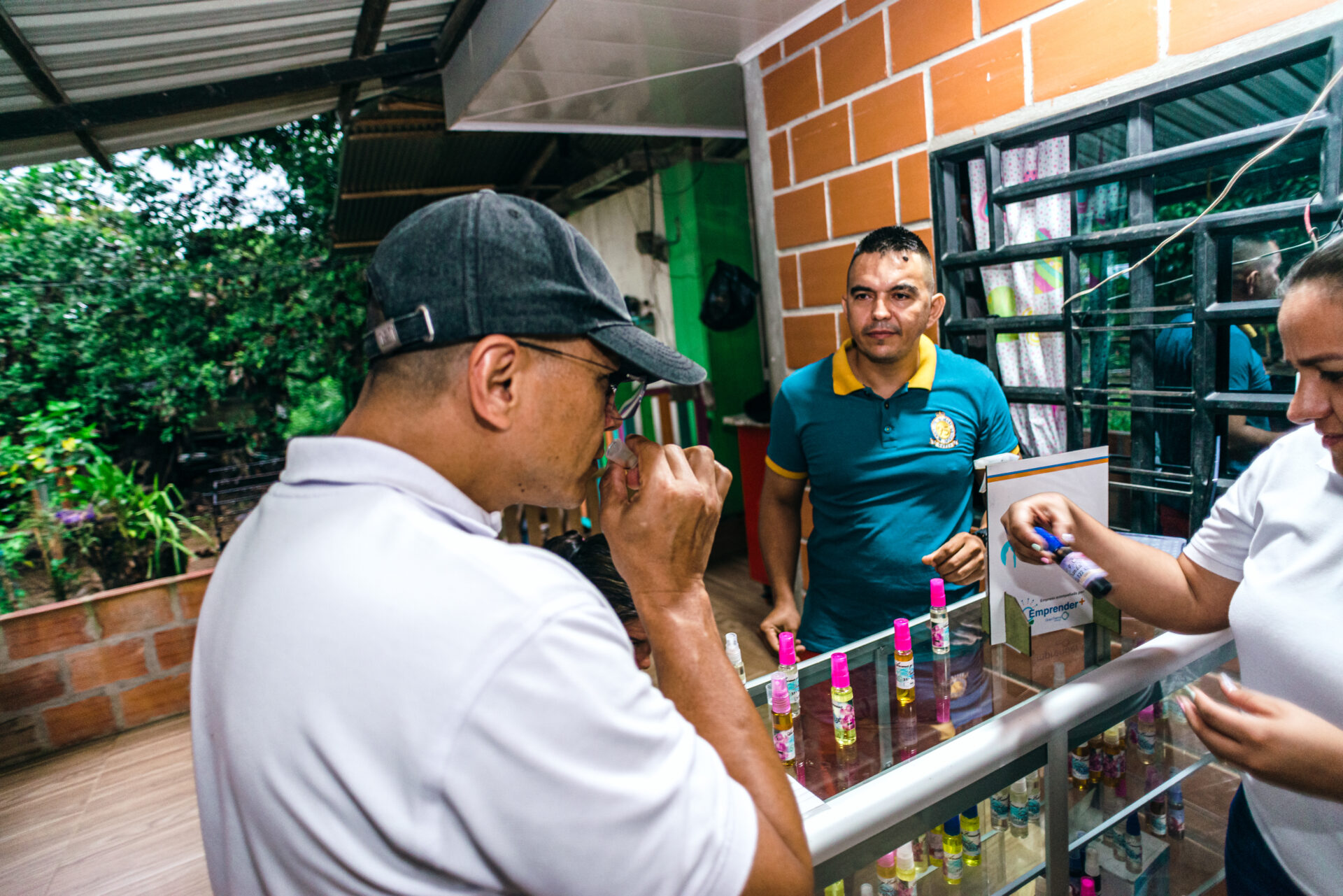
Strengthening Human Rights Throughout the Supply Chain
Gran Tierra Energy is committed to operating at the highest level of responsible business conduct, through the adherence and application of the highest Human Rights and Business international standards, as well as in strict compliance with the legislation of the countries where the company operates. The Company creates and ensures a non-discriminatory and respectful work environment for all its personnel and contractors, offering safe and healthy working conditions. Gran Tierra is also committed to managing human rights risks within its business and through its supply chain, including working to combat forced labour and child labour.
To ensure that our operations are conducted with the highest ethical and transparent performance, Gran Tierra requires strict adherence to all of its Corporate Policies throughout its supply chain. Furthermore, the Company conducts its operations in alignment with the ILO Fundamental Principles and Rights at Work of the 1998 International ILO Declaration, including a commitment to the elimination of child labour, forced labour, discrimination in the workplace, and recognition of freedom of association – all essential to maintaining excellence in operations.
Our commitment to human rights awareness, principles and protections help partners and suppliers prepare for and respond to any scenario throughout GTE’s value chain. In 2024, 332 contracts were entered into with 200 suppliers for the provision of goods and/or services in Colombia and Ecuador. 100% of these contracts included human rights clauses and a document called The Responsible Practices for the Respect of Human Rights (RPRHR), which outlines that all suppliers are required to provide services to the Company in accordance with GTE’s human rights policies.
Since 2021, Gran Tierra has offered training to its contractors to help them understand and adhere to its Human Rights Policy. To strengthen commitments and good practices within its supply chain, the Company partnered with Hemisferio Consultores and ICESI University to deliver targeted programs to 22 local contracting companies, many of whom have since formalized their own Human Rights policies.
Gran Tierra Energy will continue to strengthen the integration of human rights principles across its operations and supply chain, as part of its commitment to ethical and responsible business conduct.

Supporting our Stakeholders with Human Rights Training
One of the main pillars of GTE’s Human Rights work involves integrating its policies and concepts into its business. This effort requires extensive training with internal stakeholders to ensure they understand and adhere to the Company’s policies which are designed to protect rights.
This includes:
- Environmental management and licensing, including rights to land, water, and other natural resources.
- Health and Safety, including the right to life, physical integrity and security.
- Social freedom, including rights to protest and exercise legal rights.
Training sessions for a variety of external stakeholders focus on fundamental Human Rights concepts as well as GTE’s policies and scope of responsibility to the community. These sessions look at GTE’s Human Rights best practices and showcase the overall strategy for addressing and managing any Human Rights issues.
Training The Workforce
A fundamental part of Gran Tierra’s commitment to respecting and promoting human rights is the integration of its Human Rights Policy at all levels of the organization. GTE conducts a range of activities to build awareness and understanding of Human Rights principles among employees, contractors, and supply chain partners. Central to this strategy is regular training, which equips personnel to identify and address potential issues, such as preventing forced and child labour child labour and ensuring safety and respect for social leaders in the communities who live near our operations.
Strengthening Suppliers
Since 2021, Gran Tierra has offered training to its contractors to help them understand and adhere to its Human Rights Policy. To strengthen commitments and good practices within its supply chain, the Company partnered with Hemisferio Consultores and ICESI University to deliver targeted programs to 22 local contracting companies, many of whom have since formalized their own Human Rights policies.
Strengthening transparency and access to information
Transparency, respect, and open communication with communities are key pillars of GTE’s community engagement. In 2024, the Human Rights team rolled out a series of internal workshops designed to strengthen staff capacity and ensure consistent standards for communities’ rights to transparency and access to information.
The workshops were held in Ecuador (4 sessions) and Colombia (2 sessions), reaching 52 employees across the social, environmental, and licensing teams. The sessions covered five topics:
- Guide for Participatory Dialogue
- Guide for Maximum Disclosure and Transparency
- Guide for Differential (Ethnic) Approaches
- Guide to Clear Language and Accessibility
- Document Management Tool

0
new courses
2 new human rights courses were developed to help employees, contractors and supply chain partners identify and understand human rights principles
0
contracting companies
22 contracting companies received training to understand and comply with GTE’s Human Rights Policy, and many have since adopted their own human rights policies as a result
0
training sessions
6 training sessions were held in Colombia and Ecuador, reaching 52 employees across the social, environmental and licensing teams
SWIPE FOR MORE

